Hand-Picked Top-Read Stories
Why you should or shouldn’t get a phd, what is self-plagiarism and how can you avoid it, what’s the difference between a dissertation and a thesis, trending tags, best mathematics online phd programs, table of contents hide, is a mathematics phd lucrative in the job market, examples of positions you can hold with a phd in mathematics, 1. university of wyoming: online phd in mathematics education, 2. bircham international university: doctor – mathematics, 3. the university of wolverhampton: phd postgraduate research in computing and mathematics, 4. edith cowan university: online mathematics phd, 5. university of sussex: mathematics phd.
A PhD in Mathematics is the highest academic degree that you can earn in the field of mathematics. The program normally takes from four to five years on average, and it includes both coursework and research components. Students who get a PhD in Mathematics typically go to excel at the highest level of careers such as professors or researchers at universities or other research institutes. The degree can also be beneficial for those who wish to work in the private sector, as many businesses value employees with advanced mathematical skills.
The quality of an online PhD in Mathematics is largely the same as a traditional on-campus PhD mathematics program, only that the online version can be completed entirely online. Students in the program complete most of the coursework and research without attending on-campus classes, safe for a few meetings here and there depending on the university’s planning. The mathematics online PhD program is designed for those who want to earn their doctorate while continuing with their full-time commitments.
Yes. A PhD in Mathematics can be very lucrative in the job market today as many businesses and organizations value individuals with this type of advanced training and education. Professionals with a PhD in Mathematics often find employment in academia, research, or government. They may also work as consultants or private tutors. The earning potential for achievers with a PhD in Mathematics is very high. Many individuals with this type of doctorate degree earn six-figure salaries these days.
PhD in Mathematics will essentially widen your career opportunities, both in academics, public and private sectors. In the case of academia, you will spend your career first as a student and then as a professor teaching about your passion. Government organizations and private companies also offer plenty of opportunities for math PhD holders.
According to Glassdoor , the base annual pay for Math PhD holders in the USA, for example, is around 72,568 US dollars, with additional compensation of 23,614 US dollars, totaling 96,182 US dollars. However, the pay varies depending on several factors, including industry, years of experience, and location.
The US Bureau of Labor Statistics predicts that the demand for statisticians and mathematicians will increase by 31 percent over the next decade. The bureau predicts about 4,100 openings each year during this period.
One valuable benefit of a PhD mathematics program is that it allows you to pursue a very wide range of career options. This can be attributed to the fact that the core principles of mathematics, to a large extent, support all sciences.
The most common career paths for PhD in Mathematics holders are education, finance, scientific research, information and communication, government, and manufacturing.
Graduates of this program can easily thrive in following positions which also happen to be the most common.
- University tutor or professor: Most PhD in math holders end up teaching undergraduate students in the university. PhD students gain connections while studying and researching, and end up teaching in the same university. This path is also ideal for maths PhD online students that prefer to continue focusing on mathematical concepts and theories as part of their career. As a tutor or professor, one is responsible for imparting mathematical knowledge to students and conducting research in the field.
- Researchers: Some pursue careers as postdoctoral researchers at universities, private companies, or government agencies. This is a popular route because it provides opportunities for undertaking research, supervising others, collaborative work, and attending conferences.
- Finance: An online PhD in math program equips you with excellent analytical skills; hence, most mathematics PostDocs find a career in finance. This career path involves working with significant players in the financial world with specific job titles such as Risk Modeler, Investment Analyst, or Actuarial Analyst.
The table below shows a list of some of the top positions in this field alongside the corresponding median salaries.
| Job Title | Description | Median Salary |
| Actuaries | A professional who uses mathematics to assess risk and its financial impact on businesses and individuals. Actuaries are employed by insurance companies, banks, and other businesses to help them make sound decisions about risk management. | $110,000 |
| Operations Research Analysts | An operations research analyst uses mathematical and analytical methods to help businesses improve their efficiency and effectiveness. Operations research analysts are employed in a variety of industries, including manufacturing, healthcare, and transportation. | $86,000 |
| Mathematicians | A mathematician uses mathematical theories and methods to solve problems in various fields, such as physics, engineering, and business. Mathematicians usually work in research and development positions, and they often teach at universities. | $93,000 |
| Statisticians | A statistician uses statistical methods to collect and analyze data. Statisticians are employed in a variety of fields, such as market research, medicine, and sports. | $90,000 |
| Data Scientists | A data scientist uses scientific methods to collect and analyze data from sources such as social media, Internet of Things (IoT), and transactions. | $100,000 |
Please note that these median salaries are not cast in stone. They keep changing from time to time, mostly upwards.

The best Mathematics Online PhD programs
Not all universities that offer a PhD in Mathematics have brought this program online. So this selection is only based on a comprehensive analysis of the universities that are already offering PhD mathematics programs online. Most importantly, e-learning is now embraced widely and any university that is yet to roll-out this new normal will comply sooner or later.
There is even more good news: It’s emerging that the number of students pursuing online learning programs is on the rise. In fact, the United States e-Learning market alone is expected to grow at a CAGR of 12 percent and reach 21.64 billion US dollars in the next few years. This growth plays a revolutionary role that will eventually tilt the higher learning ecosystem and influence many if not all universities and colleges to bring their courses online. Given the way the digital shift has already disrupted even the most rigid industries like manufacturing, it’s only a matter of time before we see a complete disruption across the education sector.
It’s important to note that some online mathematics PhD programs may offer limited topics, research, and dissertation scopes compared to campus-based programs. However, this does not make such programs inferior to the on-campus alternatives. All you need to do is find a program that meets your desires in terms of the career path you would like to pursue.
Here now are the best programs for an online PhD in Mathematics:
The University of Wyoming is a reputable institution that is ranked highly among the best universities by the US News and World Report . It offers online and on-campus bachelor’s, master’s, and doctoral programs.
The Online PhD in Mathematics Education program focuses on mathematical modeling, qualitative research, quantitative reasoning, associated geometry, and differential equations. Students of this program must also complete a preliminary exam and dissertation research in order to be considered for graduation.
Once you complete this online math PhD program, you can pursue a career as a math doctorate advisor, mathematics professor, or elementary education specialist. You can also work in the corporate world or government.
This PhD maths online program takes three years and is accredited by the Higher Learning Commission.
The program’s admission requirements include:
- Master’s degree
- GRE scores: 151 (verbal), 144 (quantitative), and 4.0 for analytical writing
- Three years of P-12 teaching or equivalent relevant professional experience
- Letter of intent, resume, scholarly writing sample, and three letters of recommendation.
- Online application
- Interview with program faculty
Intake dates are as follows:
Spring start
- Applications are due by September 1st
- Review of application completed on October 15th
- Communication of admissions by November 15th
Summer/ Fall start
- Applications are due by February 1st
- Review of application completed on March 15th
- Communication of admissions by April 15th
Bircham International University is committed to fulfilling the needs of students who prefer not to attend traditional on-campus classes. It offers online bachelor’s, master’s, and doctoral degree programs, as well as continuing professional and education diplomas.
The Doctor – Mathematics program evaluates the application of mathematics as a tool for scientists and engineers. It covers geometry, arithmetic, calculus, algebra, trigonometry, set theory, differential equations, and other mathematical topics.
This doctorate in mathematics program is divided into text book and thesis sections. The textbook portion is the largest and constitutes 70 percent whereas the thesis component contributes 30 percent of the program.
Admission requirements include:
- A master’s degree or an international equivalent with five years of study
- Copies of transcripts or relevant documents
- Curriculum Vitae
- ID card or passport
- Filled-out application form
- One ID-sized photo
Students can also transfer credits from other institutions as long as they are recognized by the university.
All the Bibliography books that students will need for the program are covered by the program fees and the University will send these books physically to the address given by the student. The books take anywhere between two to five weeks to arrive depending on your location.
Some of the sources and networks that students will be able to access include the American Mathematical Society, Association of Mathematics Teacher Educators, European Mathematical Society, and the International Council for Industrial and Applied Mathematics among many others. These are all credible bodies, demonstrating the extent to which the university goes to ensure that students get the very best of mathematical knowledge at the highest level.
The University of Wolverhampton is committed to helping graduates and students thrive locally and beyond. It works closely with businesses in supporting development and innovation with forward-thinking talent.
The PhD Program takes four years under the supervision of academics who are high achievers in their area of expertise. The school of Computer Science and Mathematics prides itself on its unwavering support to research students in their PhD journey.
PhD research students have the opportunity to develop research skills by participating in training events organized by the faculty and the university’s doctoral college.
Here are the essential entry requirements:
- First or upper second class degree
- Masters degree
- Evidence of learning or practice that is acceptable by the Dean of Research
The program takes students through two important stages once the student is officially registered. The first stage is known as Progression, where students are required to prepare and submit a summary of their achievements through this period which takes 18 months. Additionally, they need to outline their research plans for the remaining part of the program. This paper should also be presented orally in a workshop format. The final stage is the Examination which is based on the thesis plus an oral examination.
Edith Cowan University (ECU) is a top public institution in Australia offering undergraduate and postgraduate programs. The university understands the different work arrangements, learning styles, locations, and family responsibilities and thus offers loads of online programs to help balance education and other commitments.
The Online Mathematics PhD concentrates on operations research, mathematical modeling, geostatistical modeling, bayesian statistics and modeling, and biostatistics.
The university offers state-of-the-art commuting facilities and emphasizes collaboration with government agencies, the private sector, and non-profit organizations. This program takes a duration of four years.
Entry requirements include:
- Master’s degree in research
- First class or upper second class bachelor’s degree
- Demonstrated capacity to conduct original PhD-level research
- English competency test
The University of Sussex is a top public research university in the United Kingdom. It was established in 1959 and received its royal charter in 1961. It offers high-class education to over 20,000 students representing more than 140 nationalities.
This Mathematics PhD program covers applied and theoretical mathematics, including geometry and topology, differential equations, mathematical biology, mathematical physics, probability and statistics, scientific computing, and numerical analysis.
The program takes four years for full-time and six years for part-time students. Applicants should submit their applications one month before the start date for UK students and three months before for international students.
Admission requirements:
- Master’s degree with 60% merit overall
- Upper second class undergraduate degree
- English proficiency test for International students
The program’s alumni describe it as the most challenging and rewarding experience. The supervisors are exceptional, which makes a significant contribution to the overall quality of the program as supervisors will always be a key element of any PhD program.
Most professionals agree that mathematics is not just any other field of study, it’s among the most important subjects that in fact acts as a foundation for many other areas of study. A PhD in mathematics, therefore, takes your scholarly value to the pinnacle of this most respected subject.
While demanding, a PhD in Mathematics is not just another degree to add to your resume. It’s a sign that you have mastered one of the most difficult and challenging fields of study. And the fact that students can pursue this competitive program online has made it not only easily accessible but also reasonably affordable for all ambitious mathematicians no matter their geographical location in the world.

PHD in Economics, Associate Professor, Department of Business Process Management, Faculty of Market Technologies IOM
Explore your training options in 10 minutes Get Started
- Graduate Stories
- Partner Spotlights
- Bootcamp Prep
- Bootcamp Admissions
- University Bootcamps
- Coding Tools
- Software Engineering
- Web Development
- Data Science
- Tech Guides
- Tech Resources
- Career Advice
- Online Learning
- Internships
- Apprenticeships
- Tech Salaries
- Associate Degree
- Bachelor's Degree
- Master's Degree
- University Admissions
- Best Schools
- Certifications
- Bootcamp Financing
- Higher Ed Financing
- Scholarships
- Financial Aid
- Best Coding Bootcamps
- Best Online Bootcamps
- Best Web Design Bootcamps
- Best Data Science Bootcamps
- Best Technology Sales Bootcamps
- Best Data Analytics Bootcamps
- Best Cybersecurity Bootcamps
- Best Digital Marketing Bootcamps
- Los Angeles
- San Francisco
- Browse All Locations
- Digital Marketing
- Machine Learning
- See All Subjects
- Bootcamps 101
- Full-Stack Development
- Career Changes
- View all Career Discussions
- Mobile App Development
- Cybersecurity
- Product Management
- UX/UI Design
- What is a Coding Bootcamp?
- Are Coding Bootcamps Worth It?
- How to Choose a Coding Bootcamp
- Best Online Coding Bootcamps and Courses
- Best Free Bootcamps and Coding Training
- Coding Bootcamp vs. Community College
- Coding Bootcamp vs. Self-Learning
- Bootcamps vs. Certifications: Compared
- What Is a Coding Bootcamp Job Guarantee?
- How to Pay for Coding Bootcamp
- Ultimate Guide to Coding Bootcamp Loans
- Best Coding Bootcamp Scholarships and Grants
- Education Stipends for Coding Bootcamps
- Get Your Coding Bootcamp Sponsored by Your Employer
- GI Bill and Coding Bootcamps
- Tech Intevriews
- Our Enterprise Solution
- Connect With Us
- Publication
- Reskill America
- Partner With Us
- Resource Center
- Bachelor’s Degree
- Master’s Degree
Best Online Doctorates in Mathematics: Top PhD Programs, Career Paths, and Salary
An online PhD in Mathematics can land you a job as a math education specialist, data scientist, or information technology professional. If you prefer theoretical, dissertation, and course-based doctoral programs, then our list of the best online PhD in Mathematics is for you.
This list of PhD in Mathematics degree programs includes information technology, education, statistics, and data science postgraduate degrees with advanced mathematics components. Keep reading to find out what schools offer these programs, the course curriculum, acceptance rates, highest-paying mathematics jobs for PhD grads, and tuition rates.
Find your bootcamp match
Can you get a phd in mathematics online.
Yes, you can get a PhD in Mathematics online. However, finding online doctoral programs primarily focused on statistics, mathematics, or applied mathematics is rare. An online PhD route is apt for students looking to pursue information technology, education, or analytics-based mathematics fields.
Earning an online PhD in Information Technology allows you to advance your education in topics covering discrete mathematics, algorithms, and quantitative methods. An online PhD in Mathematics focuses on core graduate courses with a theoretical research and dissertation process. Some academic programs have a residency component required either on-site or online.
Is an Online PhD Respected?
Yes, an online PhD is respected. Online PhD programs are often considered untraditional, course-based doctoral programs, but they are currently seeing rising popularity and are on par with the curriculum of a campus-based program. Your opportunities for career advancement coincide with an on-campus PhD.
However, an online PhD in Mathematics offers limited research, topics, and dissertation scopes and can limit your career possibilities. Breaking into a mathematics academia or research profession with an online PhD can be difficult.
If you want to pursue a traditional mathematics PhD where subjects include metric space, differential geometry, algebra, and calculus, then an on-campus program is for you.
What Is the Best Online PhD Program in Mathematics?
The best online PhD program in mathematics is a PhD in Mathematics Education. This program focuses on the mathematics curriculum and educational management to help you enter the academic field. You will learn mathematical thinking , qualitative and quantitative research, geometry, and mathematical modeling.
The online math PhD programs discussed in this article cover mathematical subject areas and are more apt for those looking to enter the business, data, or tech fields. You can apply to Stanford University, Columbia University, or Harvard University to find the best in-person mathematics PhDs.
Why the University of Wyoming Has the Best Online PhD Program in Mathematics
University of Wyoming has the best mathematics PhD program because it offers an affordable and reputable online mathematics education doctorate program. This program provides in-depth coverage of mathematics and qualifies you for research or post-secondary positions in the field.
Best Online Master’s Degrees
[query_class_embed] online-*subject-masters-degrees
Online PhD in Mathematics Admission Requirements
The admission requirements of an online PhD in Mathematics include educational qualifications, GPA, and professional experience components. Universities require doctoral students to earn a 3.0 or higher GPA and have a master’s or bachelor’s degree from an accredited institution.
PhD programs from the accredited institutions in this article also require two to three letters of recommendation, a resume, and graduate courses covering math education.
Depending on the school, you might also need to submit GRE and GMAT scores and proof of three to five years of relevant professional experience. Some schools also require candidates to complete a doctoral interview that discusses their interests in the program.
- 3.0 or higher GPA and a relevant undergraduate degree or master’s degree
- Official transcripts from all attended universities
- GRE and GMAT scores
- Resume, personal statement, and letters of recommendation
- Financial assistance application
- Doctoral interview with program faculty
- Prerequisites for graduate courses providing a math education
- Proof of three to five years of professional experience in math, statistics, or a relevant field
Best Online PhDs in Mathematics: Top Degree Program Details
| School | Program | Estimated Length |
|---|---|---|
| Capella University | PhD in Information Technology | 4 years and 9 months |
| Capitol Technology University | PhD in Business Analytics and Data Science | 3 years |
| City University of Seattle | PhD in Information Technology | 4 to 5 years |
| Colorado Technical University | PhD in Computer Science with a Concentration in Big Data Analytics | 3 years |
| Grand Canyon University | DBA in Data Analytics | Around 3 years |
| Iowa State University | PhD in Information Systems and Business Analytics | 5 years |
| Northcentral University | PhD in Data Science | 3 years and 4 months |
| Texas A&M University | PhD in Curriculum and Instruction, Emphasis in Mathematics Education | 4 years |
| University of Central Florida | PhD in Education | 3 years |
| University of Wyoming | PhD in Mathematics Education | 3 years |
Best Online PhDs in Mathematics: Top University Programs to Get a PhD in Mathematics Online
The top university programs to get a PhD in Mathematics are offered at prestigious institutions like Texas A&M, Northcentral University, and the University of Wyoming. Below is a list of the best online PhDs in Mathematics, along with their program descriptions, tuition costs, and admission requirements.
This list of online PhDs in Mathematics covers a wide range of subject areas, including information technology, data science, education, and business analytics, all of which encompass mathematics topics to help you further your career in math and tech-based professions.
Capella University is a private online university founded in 1993. Its online academic degrees are catered toward adult learners and busy professionals looking to get a higher education. It offers programs covering business, information technology, psychology, education, nursing, and health science fields.
PhD in Information Technology
If you’re interested in furthering your education in information technology with an integrated capstone project and in-field curriculum, then this degree is for you. The program includes 70 online courses covering tech research and quantitative analysis topics and allows the transfer of 12 credits.
This program has courses on assurance controls, tech consulting, quantitative design, and complex adaptive systems. This doctoral degree program can help you enter mathematical and tech research fields. You must also complete two virtual residencies and one dissertation focusing on risk management, data science processes , or advanced computing systems.
PhD in Information Technology Overview
- Accreditation: Higher Learning Commission
- Program Length: Maximum 4 years 9 months
- Acceptance Rate: N/A
- Tuition and Fees: $750/credit per quarter; $175 resource kit fee; $3,000/capstone per quarter
PhD in Information Technology Admission Requirements
- $50 application fee
- Transcripts from all attended universities
- Master’s degree from an accredited university
- Minimum 3.0 GPA
Capitol Technology University was established in 1927 and is a private accredited institution offering both on-campus and online degrees. It is regionally recognized as a top STEM field university and offers online bachelor's, master's, and doctoral programs. Prospective students can apply for online programs in engineering management, cyber security, computer science, product management, or artificial intelligence.
PhD in Business Analytics and Data Science
This business analytics and data science doctorate degree is apt for statisticians wanting to venture into leadership positions in data or business. Although this is an online-based program, it still requires campus visits for its residency course, oral defense, and dissertation presentation.
The curriculum includes applied statistics, quantitative methods, big data warehousing, applied research, and economic management. You can land lucrative statistician jobs at top companies or pursue a career in data research.
PhD in Business Analytics and Data Science Overview
- Accreditation: Middle States Commission on Higher Education
- Program Length: 3 years
- Tuition and Fees: $933 plus fees/credit for 2022 to 2023 academic year
PhD in Business Analytics and Data Science Admission Requirements
- Essay, relevant experience, and skills covering business analytics and data science
- Two letters of recommendation
- Resume showcasing a minimum of five years of industry-relevant work experience
- Undergraduate or master’s degree
- Official college transcripts
City University of Seattle specializes in providing flexible degree programs apt for adult education. It was founded in 1973 and offers more than 65 degree and certification programs. Prospective students can enroll in its advanced online degrees covering business, project management, computer systems, or education administration.
Several industry professionals in information technology or computer science have extensive math education. This PhD is an excellent choice for graduate students wanting to build a career in instructional technology, computer science research, or another STEM field.
It offers cyber security, data science, artificial intelligence, or cloud computing concentrations. The data science specialization is best suited for students wanting to get theoretical and hands-on experience across math subjects.
Some of its core courses in advanced math education cover discrete math, evidence-based practices, quantitative research, computing algorithms, and differential equation topics. The degree also requires research, a dissertation, and a residency in computer science and research.

"Career Karma entered my life when I needed it most and quickly helped me match with a bootcamp. Two months after graduating, I found my dream job that aligned with my values and goals in life!"
Venus, Software Engineer at Rockbot
- Accreditation : Northwest Commission on Colleges and Universities
- Program Length: 4 to 5 years
- Tuition and Fees: $765/credit
- Background in programming, database management, operating systems, or networking
- Resume showcasing more than two years of tech-based experience
- 400 to 600-word goal statement
- Three references and their contact information
- Admissions statement questions form
- Interview with the program faculty
Colorado Technical University offers online and on-campus programs in business, mechanical engineering, criminal justice, computer science, educational administration, and nursing education. It was founded in 1965 and currently has a robust online advanced degree program. It offers more than 80 programs to its online students.
PhD in Computer Science with a Concentration in Big Data Analytics
According to PayScale reports, the average salary of a lead data scientist is $135,887 per year. This doctoral degree provides you with the leadership skills and hands-on experience needed to land lead data scientists’ or other senior tech positions. The degree requires you to fulfill its curriculum, residency, dissertation process, and required credit hours.
Some of its core courses include advanced quantitative analysis, research methods, big data analysis, information systems, and business intelligence.
PhD in Computer Science with a Concentration in Big Data Analytics Overview
- Tuition and Fees: $598/credit
PhD in Computer Science with a Concentration in Big Data Analytics Admission Requirements
- Contact an admissions officer
- Online application
- Background in research, theoretical, or other relevant fields
- Contact program faculty to find other requirements
- Doctoral interview
Grand Canyon University is an accredited school founded in 1949. It is home to over 23,500 on-campus students and provides education to more than 90,000 working adult students through its online schools as of 2021.
Some of its popular online programs include graphic design, communication, business administration, information systems, education administration, health sciences, and data science topics. Its online options offer both undergraduate and postgraduate degrees.
DBA in Data Analytics
If your career goals involve business or data analytics, then this DBA will help you get your dream job in data analytics . It focuses on quantitative research and math education and includes data complexity, business administration, financial management, and research design courses.
Its residency and dissertation process requires you to pursue research in statistical mechanics, quantitative analytics, and data science topics. You can also opt to attend its on-campus evening classes instead of its online option.
DBA in Data Analytics Overview
- Accreditation: Higher Learning Commission
- Program Length: 150 weeks
- Acceptance Rate: 73%
- Tuition and Fees: $715/credit
DBA in Data Analytics Admission Requirements
- 3.4 or above GPA is preferred, with 3.0 as the minimum GPA
- MBA or business-related graduate degree
- Official transcripts of all universities attended
Iowa State University is recognized as one of the flagship public schools with a total undergraduate enrollment of 26,846 students for its fall 2020 cohort. According to US News & World Report, Iowa State University ranks 122 among the best national universities and 45 in the best undergraduate engineering programs.
PhD in Information Systems and Business Analytics
This tech and business doctoral degree is apt for students looking for career advancement across organizational leadership, computer science academia, or business intelligence management fields. The degree map incorporates dissertation research, oral defense, and advanced degrees.
You will learn financial management , information technology research, business analytics, and organizational leadership. Some of its math-based courses include applied statistics, logistics, differential equations, and economics.
PhD in Information Systems and Business Analytics Overview
- Program Length: 5 years
- Tuition and Fees: $6,491/semester (in state); $14,490/semester (out of state) for fall 2021 and spring 2022
PhD in Information Systems and Business Analytics Admission Requirements
- Master’s degree preferred but not required
- Statement of purpose, CV, and college transcripts
- GMAT scores preferred, 600 minimum or equivalent GRE Scores
- Three letters of recommendation
- A writing sample relevant to the doctorate subject
Northcentral University is a private institution founded in 1996 and offers undergraduate, master's, and doctoral-level online programs. Its doctoral programs are fully online and do not include any physical residency requirements. You can choose to enroll in business administration, health sciences, education law, elementary education, technology, or public administration online programs.
PhD in Data Science
According to the US Bureau of Labor Statistics, the job outlook for data scientists is 22 percent between 2020 to 2030 . The high job outlook makes a data science doctoral degree investment highly profitable. It’s a research-based program that includes 20 courses in subjects like data warehousing, information systems, and data science theories.
PhD in Data Science Overview
- Program Length: 3 years 4 months
- Tuition and Fees: $68,560/program
PhD in Data Science Admission Requirements
- Academic evaluation with an enrollment advisor
Texas A&M University is a public school that was established in 1876. It has a large student population with a fall 2021 enrollment of 73,284 students. Its distance learning school offers 104 undergraduate degrees, certificates, and graduate programs. Distance learners can enroll in public administration, education law, public health, criminal justice, or engineering programs.
PhD in Curriculum and Instruction, Emphasis in Mathematics Education
If you want to become a professor or enter the elementary education sector, then this online doctoral degree in mathematics is for you. It helps you become an education specialist in mathematics. The degree plan requires you to complete a dissertation, curriculum development, research, and core credits.
Its courses include statistical analysis, qualitative and quantitative research, theories of education, categorical data analysis, and linear models. Some other career prospects include math education administration, data science, or statistical analytics fields.
PhD in Curriculum and Instruction, Emphasis in Mathematics Education Overview
- Accreditation: Southern Association of Colleges and Schools, Commission on Colleges
- Program Length: 4 years
- Tuition and Fees: $4,254/semester (in state); $9,019/semester (out of state) fall 2022 or spring 2023 for 9 credit hours per semester
PhD in Curriculum and Instruction, Emphasis in Mathematics Education Admission Requirements
- $89 application fee for online application
- Departmental essays
- Three letters of reference
University of Central Florida is a public research institution founded in 1963. The school is best known for its engineering, computer science, public administration, and programs in education. According to US News & World Report, the University of Central Florida is among the top public schools and ranks 15 among the most innovative schools .
PhD in Education
This online PhD in Education offers course tracks across educational psychology, English, instructional design, empirical research, social science, and K-8 mathematics. If your career goals involve being in fields like education policy, education administration, or math education, then this degree is for you.
It requires you to complete research electives, a dissertation, and 18 credit hours of core courses. It helps you master evidence-based decisions, teacher education administrative tasks, and curriculum development skills.
PhD in Education Overview
- Tuition and Fees: $327/credit (in state); $1,151/credit (out of state)
PhD in Education Admission Requirements
- Speak with a graduate program success coach
- GMAT or GRE scores
- Transcripts from all universities attended
- Immunization forms
- Residency class form
- Contact program faculty for other requirements
University of Wyoming is among the reputable national universities and offers both on-campus and online bachelor's, master's, and doctoral programs. According to US News & World Report, the University of Wyoming ranks 196 among the best national universities and number 99 in the top public schools.
Its online students can choose from its accounting, education policy, public administration, education law, finance, or nurse practitioner certificate or degree programs.
PhD in Mathematics Education
This math education doctoral degree focuses on qualitative research, mathematical modeling, quantitative reasoning, differential equations, and associated geometry topics. It also requires you to complete dissertation research and a preliminary exam.
You can use this degree to venture into mathematics professor, math doctorate degree advisor, or elementary education specialist professions.
PhD in Mathematics Education Overview
- Tuition and Fees: $7,182/year (in state); $18,324/year (out of state) for 18 credits per academic year
PhD in Mathematics Education Admission Requirements
- GRE Scores: 144 quantitative, 151 verbal, 4.0 analytical writing
- Master’s degree
- Three years of P-12 teaching or other relevant professional experience
- Meet residency and academic status requirements
- Letter of intent, three letters of recommendation, an academic writing sample, and a resume
Online Mathematics PhD Graduation Rates: How Hard Is It to Complete an Online PhD Program in Mathematics?
It is extremely hard to complete an online PhD program in mathematics. This is due to the advanced core courses, extensive research, and dissertation process requirements. Several mathematics online PhDs tend to branch into difficult subjects covering information technology, data science, or business analytics .
This requires doctoral candidates to have an extensive background in technical and advanced mathematics subjects. The timeline and approval aspects of a PhD are also demanding, leading to high attrition rates.
How Long Does It Take to Get a PhD in Mathematics Online?
It takes about four years to get a PhD in Mathematics online. However, the exact time duration can range anywhere from three to six years, depending on the candidate and program requirements. Doctoral students with transfer credit hours can complete the degree in a shorter time frame.
Students who fail to meet their dissertation process requirements or get early approval for their research topics will finish their degrees in a longer time frame. Online PhDs are catered toward full-time professionals or adult learners by offering a flexible schedule. Those who take fewer credit hours and opt for a flexible schedule will increase their degree timeline.
How Hard Is an Online Doctorate in Mathematics?
An online Doctorate in Mathematics is extremely hard. It incorporates an array of advanced subject areas and dissertation topic possibilities. The best online mathematics PhDs are offered in information technology, data science, or business analytics fields. All of these subject areas require technical knowledge and extensive research commitment and self-discipline.
Best PhD Programs
[query_class_embed] phd-in-*subject
What Courses Are in an Online Mathematics PhD Program?
The courses in an online mathematics PhD program include mathematical modeling, statistics, quantitative reasoning, and discrete mathematics. Depending on your choice of a doctoral program, your core courses might also include curriculum development, data analytics, programming languages , or financial analysis.
Regardless of the primary PhD concentration, the mathematics components of the degree will help you master advanced applied math topics.
Main Areas of Study in a Mathematics PhD Program
- Data science
- Differential equations
- Mathematics curriculum development
- Business analytics
- Quantitative and qualitative research
- Discrete mathematics
How Much Does Getting an Online Mathematics PhD Cost?
It costs $19,314 per year to get a PhD in Mathematics, according to the National Center of Education Statistics (NCES). Your online PhD tuition rates will typically range in this area but will vary from one university program to another.
NCES further reports the graduate tuition of private institutions from 2018 to 2019 was $25,929 and for public institutions was $12,171. This disparity in tuition costs is also present in online PhDs in Mathematics.
How to Pay for an Online PhD Program in Mathematics
You can pay for an online PhD program in mathematics by applying for doctoral funding programs, scholarship opportunities, or education loan financing. You can also apply for an employee sponsorship program at your workplace.
The online aspect of the PhD limits student exposure to research opportunities and graduate assistantships. You can still get in touch with a university representative to find potential internal funding opportunities, though. Doctoral students can also apply for external funding available for math programs.
How to Get an Online PhD for Free
You cannot get an online PhD for free. However, PhDs and other advanced degrees may be eligible for fully-funded scholarships, depending on the student applying for them. You can apply for university or external scholarships to fully fund your PhD, but the chances of getting a full-tuition grant are low for online programs.
What Is the Most Affordable Online PhD in Mathematics Degree Program?
The most affordable online PhD in Mathematics degree program is offered by the University of Central Florida for $18,675. The school’s PhD in Education charges $327.32 per credit hour and consists of 51 to 57 credits for the program.
Most Affordable Online PhD Programs in Mathematics: In Brief
| School | Program | Tuition |
|---|---|---|
| University of Central Florida | PhD in Education | $327.32 per credit |
| University of Wyoming | PhD in Mathematics Education | $7,182 per year |
| Texas A&M University | PhD in Curriculum and Instruction, Emphasis in Mathematics Education | $4,254 per semester |
| Iowa State University | PhD in Information Systems and Business Analytics | $6,491 per semester |
| Grand Canyon University | DBA in Data Analytics | $7,145 per credit |
Why You Should Get an Online PhD in Mathematics
You should get an online PhD in Mathematics because it will help you land lucrative positions in post-secondary education, management, or research. A PhD is highly respected and showcases your expertise in advanced applied mathematics topics.
Top Reasons for Getting a PhD in Mathematics
- Multifaceted career outcome opportunities. An online PhD in Mathematics covers technical and non-technical subjects, including computer science, data analytics, education management, and applied mathematics. This opens up career possibilities across several in-demand industries.
- Specialized skills. Mathematics PhDs help you acquire specialized skills in quantitative research, statistical analytics, and discrete mathematics. These skills are highly demanded in the data, research, artificial intelligence, and business industries.
- Higher salaries. These doctoral programs also qualify you for senior roles. Senior-level roles offer higher salaries and an increased earning potential.
- High job security. The US Bureau of Labor Statistics notes that the job outlook for computer and information research scientists is 22 percent between 2020 to 2030. Several online mathematics PhDs will qualify you for jobs under these tech occupations and provide you with a high job security rate.
Best Master’s Degree Programs
[query_class_embed] *subject-masters-degrees
What Is the Difference Between an On-Campus Mathematics PhD and an Online PhD in Mathematics?
The difference between an on-campus mathematics PhD and an online PhD in Mathematics the core course topics and research potential. The career outcomes of these types of degrees also vary depending on your choice of program. Below are the key differences between an on-campus vs an online mathematics PhD program.
Online PhD vs On-Campus PhD: Key Differences
- Tuition affordability. An online PhD in Mathematics is typically less expensive compared to an on-campus PhD. However, although an on-campus degree is more costly, there are more funding opportunities.
- More math concentrations. There aren’t many mathematics concentrations in an online program compared to in-person degrees. Most online programs offer information technology, data science, or education focused on advanced math subjects.
- Research scopes. The research topic scopes in an on-campus program are more practical, unlike dissertation-based online PhDs.
- Socialization opportunities. An on-campus PhD offers ample socialization opportunities and easy access to the program faculty and financial aid offices. This is more difficult for online doctoral students.
How to Get a PhD in Mathematics Online: A Step-by-Step Guide
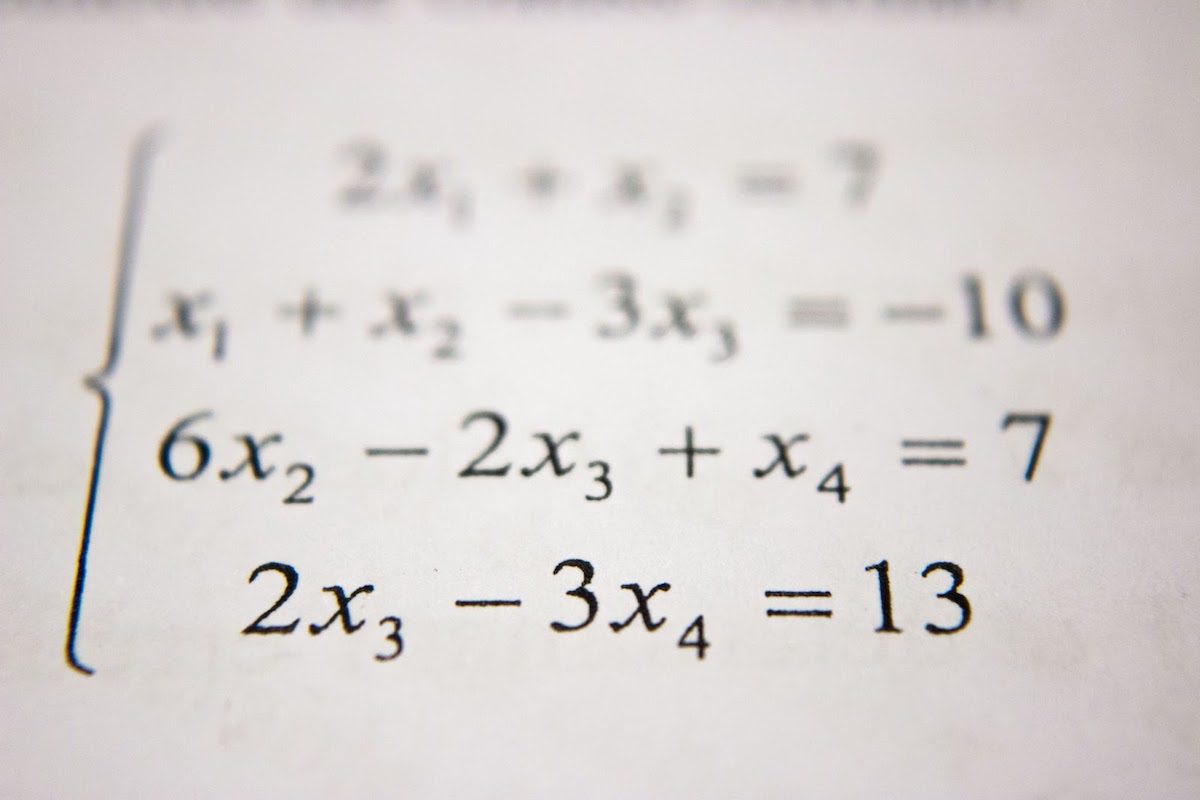
To get a PhD in Mathematics online, you need to fulfill the school’s admissions prerequisites and program requirements. Below are the five main steps required to complete an online PhD in Mathematics.
You must pay the application fee, upload official transcripts, and fill out the application questionnaire. You will also submit all proof of professional experience, letters of recommendation, resumes, and personal statements.
The admissions requirements section is where you complete a doctoral interview with the program faculty. The requirements for this interview will vary from school to school. You will discuss degree outcomes, passions, and financial payment plans during the interview.
The third step is to contact your program advisor and discuss the degree timeline and requirements. You will discuss potential research and dissertation topics.
Next, you must complete all core courses. The courses will vary depending on your major, but it is crucial to complete them to graduate both successfully and on time.
The last step is to complete your research, residency, and dissertation process. This step requires prior approval from the program’s doctoral faculty.
Online PhD in Mathematics Salary and Job Outlook
The salary and job outlook for online mathematics PhDs will vary by industry, profession, and degree concentration. The salary can range from $79,640 to $110,000 per year, and the job growth rate can go as high as 33 percent.
What Can You Do With an Online Doctorate in Mathematics?
With an online Doctorate in Mathematics, you can become a research analyst , mathematics professor, statistician, or data scientist. You can also enter higher education management, data analytics, quantitative research, or finance analytics professions. The career possibilities with an online Doctorate in Mathematics are countless and cover many industries.
Best Jobs with a PhD in Mathematics
- Mathematics Professor
- Statistician
- Operations Research Analyst
- Mathematician
- Data Scientist
Potential Careers With a Mathematics Degree
[query_class_embed] how-to-become-a-*profession
What Is the Average Salary for an Online PhD Holder in Mathematics?
The average salary for PhD in Mathematics holders is $110,000 per yea r, according to PayScale. However, your salary range will vary depending on your choice of profession. Education sector professions often offer lower average salaries compared to information technology or data science sectors.
Highest-Paying Mathematics Jobs for PhD Grads
| Online Mathematics PhD Jobs | Average Salary |
|---|---|
| Data Scientist | |
| Statistician | |
| Mathematician | |
| Operations Research Analyst | |
| Mathematics Professor |
Best Mathematics Jobs for Online PhD Holders
The best mathematics jobs for online PhD holders opens up opportunities across the research, data, analytics, or information technology fields. Below are the highest-paying jobs you can apply for with your online PhD in Mathematics.
A data scientist is responsible for analyzing, visualizing, and sorting raw data into useful information. They can work in a wide range of industries and work to extract useful data for optimal business operations or scientific results.
- Salary with a Mathematics PhD: $100,910
- Job Outlook: 22% job growth from 2020 to 2030
- Number of Jobs: 33,000
- Highest-Paying States: Oregon, Arizona, Texas
A statistician is a mathematics and data science professional who uses quantitative and qualitative research in surveys to find valuable information. They are responsible for designing, conducting, and analyzing each quantitative survey.
- Salary with a Mathematics PhD: $96,280
- Job Outlook: 33% job growth from 2020 to 2030
- Number of Jobs: 44,800
- Highest-Paying States: New York, Connecticut, Massachusetts
A mathematician conducts research on theoretical mathematical principles to advance the mathematics, physics, engineering, data science, or economics fields. They work with mathematical modeling, statistical analysis, and quantitative reasoning to study mathematics.
- Highest-Paying States: District of Columbia, New York, New Jersey
An operations research analyst is responsible for evaluating an organization’s operations and production plan and must suggest further productivity solutions. They use data analytics, mathematics, quantitative and qualitative research, and statistics for their jobs.
- Salary with a Mathematics PhD: $82,360
- Job Outlook: 25% job growth from 2020 to 2030
- Number of Jobs: 104,100
- Highest-Paying States: Virginia, Alabama, Maryland
A mathematics professor works at post-secondary educational institutions and develops the course curriculum, assignments, and exams to test students in their knowledge and comprehension. They teach introductory and advanced math classes to college students and can also lead research departments.
- Salary with a Mathematics PhD: $79,640
- Job Outlook: 12% job growth from 2020 to 2030
- Number of Jobs: 1,276,900
- Highest-Paying States: California, Rhode Island, Oregon
Is It Worth It to Do a PhD in Mathematics Online?
Yes, it is worth it to do a PhD in Mathematics online. Mathematics online PhDs cover subject areas that open up career opportunities in lucrative sectors of academics, business, data science, and tech.
PhD programs are worth it for doctorate students looking to earn a higher salary and achieve increased job security. Mathematics doctoral programs qualify you for many high-paying jobs, including university professor, research analyst, and mathematician.
Additional Reading About Mathematics
[query_class_embed] https://careerkarma.com/blog/best-mathematics-bachelors-degrees/ https://careerkarma.com/blog/best-online-mathematics-bachelors-degrees/ https://careerkarma.com/blog/mathematics-associate-degrees/
Online PhD in Mathematics FAQ
Online mathematics PhDs cover courses in applied mathematics, discrete mathematics, statistics, quantitative research, and operations analytics topics. The core subject areas will vary depending on the focus subject of the online degree.
No, it is not easy to get an online mathematics PhD. A doctoral degree comprises research, dissertation, and advanced courses covering highly technical topics.
It will take around three to five years to complete an online mathematics PhD. Your degree timeline depends on your course schedule, dissertation process, and transfer credits.
A data science concentration is best for an online mathematics PhD. Data science is a rapidly growing field that encompasses tons of in-demand professions with high salaries. Moreover, with a data science focus, you will also get to work on a wide range of real-world problems instead of just theoretical scenarios.
About us: Career Karma is a platform designed to help job seekers find, research, and connect with job training programs to advance their careers. Learn about the CK publication .
What's Next?
Get matched with top bootcamps
Ask a question to our community, take our careers quiz.

Leave a Reply Cancel reply
Your email address will not be published. Required fields are marked *

PhD Program
More information and a full list of requirements for the PhD program in Mathematics can be found in the University Bulletin .
During their first year in the program, students typically engage in coursework and seminars which prepare them for the Qualifying Examinations . Currently, these two exams test the student’s breadth of knowledge in algebra and real analysis.
Starting in Autumn 2023, students will choose 2 out of 4 qualifying exam topics:
- real analysis
- geometry and topology
- applied mathematics
Course Requirements for students starting prior to Autumn 2023
To qualify for candidacy, the student must have successfully completed 27 units of Math graduate courses numbered between 200 and 297.
Within the 27 units, students must satisfactorily complete a course sequence. This can be fulfilled in one of the following ways:
- Math 215A, B, & C: Algebraic Topology, Differential Topology, and Differential Geometry
- Math 216A, B, & C: Introduction to Algebraic Geometry
- Math 230A, B, & C: Theory of Probability
- 3 quarter course sequence in a single subject approved in advance by the Director of Graduate Studies.
Course Requirements for students starting in Autumn 2023 and later
To qualify for candidacy, the student must have successfully completed 27 units of Math graduate courses numbered between 200 and 297. The course sequence requirement is discontinued for students starting in Autumn 2023 and later.
By the end of Spring Quarter of their second year in the program, students must have a dissertation advisor and apply for Candidacy.
During their third year, students will take their Area Examination , which must be completed by the end of Winter Quarter. This exam assesses the student’s breadth of knowledge in their particular area of research. The Area Examination is also used as an opportunity for the student to present their committee with a summary of research conducted to date as well as a detailed plan for the remaining research.
Years 4&5
Typically during the latter part of the fourth or early part of the fifth year of study, students are expected to finish their dissertation research. At this time, students defend their dissertation as they sit for their University Oral Examination. Following the dissertation defense, students take a short time to make final revisions to their actual papers and submit the dissertation to their reading committee for final approval.
Throughout the PhD Program
All students continue through each year of the program serving some form of Assistantship: Course, Teaching or Research, unless they have funding from outside the department.
Our graduate students are very active as both leaders and participants in seminars and colloquia in their chosen areas of interest.
2024 Best Online PhD in Mathematics [Doctorate Guide]
Earning a math PhD can be beneficial for many different professional paths. A doctorate in mathematics will encourage you to explore the boundaries of math, and you’ll conduct research in addition to coursework.

Additionally, some programs ask students to complete a thesis or dissertation to earn the title of Doctor of Mathematics.
Editorial Listing ShortCode:
Read on to learn more about what a doctorate degree in mathematics entails and determine if it’s the right path for you.
Online Math PhD Programs

Earning a PhD in Mathematics can be an exciting step for many students. This advanced degree is typically sought out by those who wish to dive deeper into mathematical processes, theory, and research.
Students who earn the title of Doctor of Mathematics are often prepared for a variety of advanced roles in education, STEM fields, and data science and management. In addition to completing core classes, you’ll typically have the opportunity to take courses and complete research that help you complete your dissertation.
A dissertation is often linked to potential career and professional opportunities and studies. Many math PhD programs provide a variety of specialty areas to help students hone in on their area of expertise. Those who graduate with a doctorate degree in mathematics pursue careers in a variety of fields, depending on their area of expertise and research.
Graduates’ advanced skills in understanding numeric principles and mathematical reasoning are applicable to a variety of roles, such as:
- Actuarial analyst or financial strategist for businesses
- Academic leader or postsecondary professor
- Government agency consultant or advisor
- Researcher in STEM fields
A highly developed understanding of mathematics, research, theory, and their applications can be beneficial in a variety of professional settings. Pursuing a math PhD can help you fine-tune your skills and grow your professional qualifications in this lucrative field.
Math Careers & Salaries
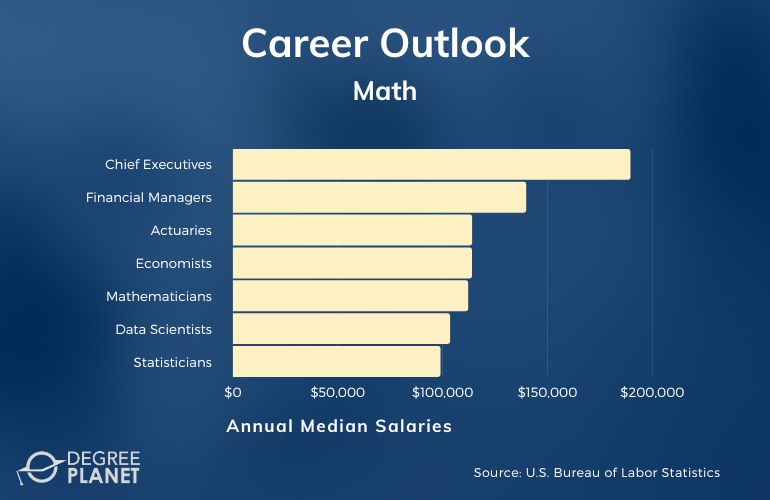
Individuals who have earned a PhD in Math often select careers that exercise their skills in reviewing numbers, outcomes, and analyzing information. Many math professionals with a PhD combine their interests with fields such as physics, engineering, or finance.
According to the Bureau of Labor Statistics , here are the median salaries for various careers related to advanced studies in mathematics.
| Chief Executives | $189,520 |
| Financial Managers | $139,790 |
| Actuaries | $113,990 |
| Economists | $113,940 |
| Mathematicians | $112,110 |
| Data Scientists | $103,500 |
| Statisticians | $98,920 |
| Financial Analysts | $95,080 |
| Operations Research Analysts | $85,720 |
| Postsecondary Mathematical Science Teachers | $77,420 |
Some mathematics professionals work as analysts, actuaries, or economists, working with businesses or government entities to review figures and review outcome probability. Others pursue work as professors, researchers, or leaders within postsecondary education.
Mathematicians and statisticians are often employed in a variety of fields where an in-depth knowledge of these topics can be important. These fields can include energy production and mining, aerospace and transportation, finance, or pharmaceutical production.
Mathematics Doctorate Curriculum & Courses

While each school offering a doctorate degree in mathematics will have its own unique curriculum, students will typically encounter courses that encourage their growth.
Some courses that you may encounter while studying for your math PhD include:
- Linear Algebra : This course involves the process of plotting mathematical problems via vectors and matrices.
- Ordinary and Partial Differential Equations : In this course, you’ll solve for unknown variables and their derivatives.
- Probability : At the doctorate level, you’ll take this study of likelihood and chance to a more in-depth, theoretical stage.
- Geometry and Topology : This course compares the local and global implications of continuous and discrete moduli, and it explores topics such as Riemannian geometry and homotopy theory.
- Harmonic Analysis : Using the Fourier transform and Fourier series, you’ll explore functions and frequency.
- Estimation Statistics : Students will combine a variety of factors to create and conduct experiments that allow them to analyze incomplete data.
- Graph Theory : This course provides the opportunity to study graphs and the relationship of multiple pieces of data to each other.
- Mathematical Analysis : In this course, you’ll use both real and complex numbers to explore scenarios involving continuous and analytic functions, limits, infinite sequences, and other mathematical objects.
- Algebraic Combinatorics : Students will explore enumeration, permutation, partitions, sets, and cycles to investigate the world of abstract algebra.
- Operator Theory : This course involves a deep dive into linear operators on function spaces, including the study and analysis of various operators.
Your interests, dissertation, and overall goals will typically influence which courses you choose. It can be beneficial to review each program’s curriculum before you decide on a school.
Admissions Requirements

Each college or university will have its own set of admissions requirements for students applying for their PhD in Mathematics. It’s beneficial to review the application process in full before starting.
Some of the items required by many mathematics doctorate programs include:
- GRE or GMAT Scores (only some schools require them)
- Transcripts of previous education
- Master’s degree in a related field
- CV or resume
- Statement of intent
In addition, you will likely be asked to provide academic writing samples as well as letters of recommendation. You may be asked to complete an interview with department staff, too.
Accreditation
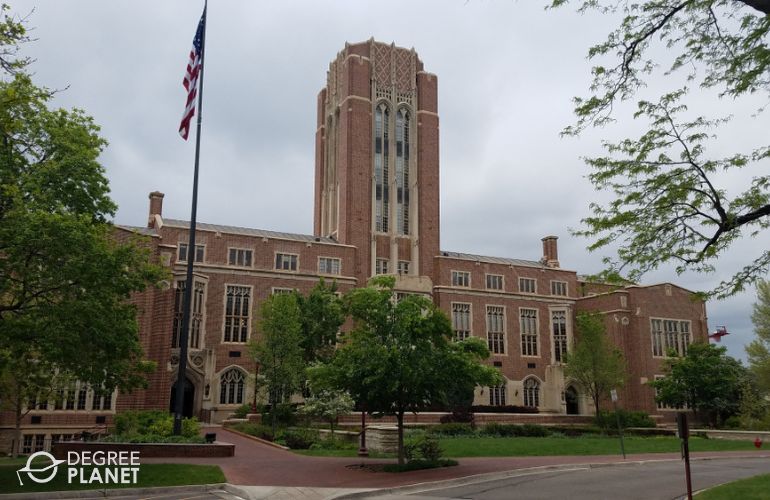
When researching schools that offer a PhD in Math online, you may wish to give special attention to schools that hold regional accreditation.
Accredited schools have been carefully evaluated for their academic precedence. As a result, employers often prefer or require candidates to have received their doctorate in mathematics from an accredited institution. Credible regional accrediting organizations are recognized by the Council for Higher Education Accreditation. You can visit CHEA’s website to verify a school’s accreditation status.
Additionally, benefits such as financial aid, certification, and membership to professional organizations may be tied to earning your doctoral degree from an accredited institution.
Financial Aid and Scholarships

If you are interested in needs-based financial aid, you could fill out and submit the FAFSA, or Free Application for Federal Student Aid . This determines your eligibility for federal financial aid. Most state aid programs want to see your FAFSA results as well.
You could also inquire about scholarship opportunities through the school you choose to attend. Many programs offer financial assistance for students based on prior academic performance, chosen specialty, or demographic factors. Your employer may also offer an educational assistance program, such as tuition reimbursement, for workers who are furthering their education.
In addition, some independent parties, corporations, and communities offer scholarship or grant opportunities for doctoral students. The requirements for these scholarships vary and are often as unique as the gifts themselves.
What Can You Do with an Online PhD in Mathematics?

A Doctor of Mathematics degree is designed for those who wish to complete in-depth research and exploration of the various expressions of mathematics in our world.
Those who earn this degree may wish to work in educational, research-driven, financial, economic, or technological fields. They may also choose to work in a variety of STEM-related fields, in areas such as energy, software, corporate, government, and aerospace.
Common career paths for advanced mathematics professionals include mathematician, statistician, actuary, economist, data scientist, and operations research analyst. Those with a PhD may also pursue teaching or research roles in colleges and universities.
How Long Does It Take to Get a PhD in Math Online?

It often takes between 3 to 5 years of full-time study to complete a PhD program. Your overall timeframe, though, could depend on the program you select and your enrollment status.
In many cases, the number of required credit hours combined with the dissertation process will dictate how long it takes to receive your degree. If a doctorate program does not have a dissertation requirement, a full-time student can typically complete the program in 3 years.
You may wish to compare programs’ course catalogs to understand the program structure and course schedule of each school you’re considering.
What’s the Difference Between Applied Mathematics vs. Mathematics PhD Programs?
There are many similarities between the topics studied in a PhD program in applied mathematics versus a PhD program in mathematics. The area of concentration for each program differs a bit in practice.
In each program, students are able to test theories, produce research, and examine principles, though the motivation and results may vary.
Is a Math PhD Degree Worth It?

Yes, a math PhD degree is worth it for many students. Math professionals can use their skills in a variety of areas, including finance, engineering, technology, education, and business.
According to the Bureau of Labor Statistics, overall employment for math occupations is projected to grow by 29% over the next ten years. This is much faster than the average for all occupations. Common math careers include actuaries, data scientists, mathematicians, statisticians, and operations research analysts. A PhD can also help you qualify for positions in research and academia.
Universities Offering Online Doctorate in Mathematics Degree Programs
Methodology: The following school list is in alphabetical order. To be included, a college or university must be regionally accredited and offer degree programs online or in a hybrid format.

Indiana University – Bloomington offers a Doctor of Education in Curriculum and Instruction with a specialization in Mathematics Education. This degree is intended for individuals who have already obtained a master’s in a related field. The curriculum consists of 60 credits, and courses meet online. It covers topics like teaching methods, mathematical thinking, student assessment, and research skills.
Indiana University – Bloomington is accredited by the Higher Learning Commission.

Montana State University offers a Doctor of Philosophy in Mathematics (Education Emphasis). This program is designed for those who wish to pursue careers in K-12 educational settings. Potential courses include Principles of Mathematical Analysis, Models of Assessment in Mathematics, and Applied Educational Research. The completion of at least 60 credits is required to graduate.
Montana State University is accredited by the Northwest Commission on Colleges and Universities.

The University of Colorado – Denver offers a Doctor of Philosophy in Education and Human Development with a concentration in Mathematics Education. The curriculum is designed to teach the skills required to excel in diverse educational environments. The program utilizes a blend of online and on-campus delivery methods. The program’s 75 required credit hours can typically be completed in 4 to 8 years.
The University of Colorado – Denver is accredited by the Higher Learning Commission of the North Central Association of Colleges and Schools.

The University of Wyoming offers a Doctor of Philosophy in Mathematics Education. This program is designed to prepare students for work as scholar-leaders in settings like research institutions and universities. It can be completed entirely online. The curriculum consists of 81 credit hours and covers key concepts like multicultural education, curriculum development, learning and cognition, and assessment.
The University of Wyoming is accredited by the Higher Learning Commission.
Getting Your PhD in Mathematics Online

In our technological and solution-driven world, the horizons and practical applications of mathematics are expanding daily.
A math PhD program could help you grow your professional qualifications in this lucrative field. Much like with a masters in mathematics online program, earning a PhD in Mathematics online could be a more flexible and convenient format for working professionals. The professional applications of an advanced mathematics degree are diverse. Many graduates use their PhD to advance in research, academia, business, or other areas of industry.
You could start exploring accredited schools today to see which online math PhD programs best align with your interests, schedule, and goals.

- Menu Close
- Search
Applied and Computational Mathematics Master's Program Online
An online master's degree in applied and computational mathematics from Johns Hopkins University complements your knowledge with principles that can be applied to almost every discipline of science, engineering, industry, and technology—from defense technology and business to public policy and biomedicine.
- Request Info
- View Info Session

Applied and Computational Math Program Overview
Johns Hopkins Engineering for Professionals online applied and computational mathematics master’s is one of the premier graduate degree options in our top-ranked online engineering master’s program and a leading computational mathematics master’s program in the industry. The advanced-level curriculum teaches students the key steps to incorporate design and mathematical algorithms into modern technologies.
Choose from highly relevant courses like Statistical Methods and Data Analysis, Real Analysis, and Matrix Theory to support your subject-matter interests. Whether you work to develop prototypes in manufacturing or create models to predict long-term climate change, the coursework emphasizes applied and theoretical aspects of the field, so you can:
- Gain high demand skills to advance in industries that rely on mathematical modeling and computational science
- Solve probability problems, including finding properties of distribution functions
- Apply statistical software confidently
- Interpret and solve simple regression models
- Understand the distinction between axioms, definitions, and theorems
- Learn on your terms and select a flexible course schedule in a format that works best for you
Master’s Degree Focus Areas
A focus area can be selected but is not required for the computational mathematics master’s .
- Applied Analysis : Bring together mathematical topics such as differential equations, dynamical systems, approximation theory, number theory, topology, and Fourier analysis.
- Information Technology and Computation : Apply a range of tools—such as neural networks, cryptography, and data mining—to solve business and organizational problems.
- Operations Research : Employ techniques such as optimization and game theory across the employment spectrum in industries such as education, transportation, and public services.
- Probability and Statistics : Measure randomness and how to collect, analyze, and interpret numerical data in such a way as to obtain useful information.
- Simulation and Modeling : Learn to approximate a process or system over time with commonly used analytical tools like Monte Carlo Methods, Markov Chains, and queuing theory.
FOCUS AREA REQUIREMENTS
We offer three Applied and Computational Mathematics degree options; you can earn a Master of Science in Applied and Computational Mathematics, a Post-Master’s Certificate, or a Graduate Certificate.
Applied and Computational Mathematics Courses
Get details about course requirements, prerequisites, focus areas, and electives offered within the program. All courses are taught by subject-matter experts who are executing the technologies and techniques they teach. Selected undergraduate-level courses are also offered to provide mathematical background for the program. These 100- and 200-level courses are not for graduate credit. Some students may find one or more of these courses useful as a refresher or to fill gaps in their prior education.
Student Thesis and Research Papers/Projects
Learn about the requirements for completing research or a thesis in Applied and Computational Mathematics.
Self-assessment Math Placement Exams
Assessment examinations are available for Precalculus, Calculus 1, Calculus 2, and Calculus 3/Multivariable Calculus. Each assessment exam is an advisory tool to help you and your academic advisor gauge your preparedness for mathematics at a proper level here at EP. The exam is not a means to “pass out” of a particular course, and a waiver will not be granted solely based on an exam score.

Program Contacts
James spall.

Amanda Harwell
Andrew marshall, tuition and fees.
Did you know that 78 percent of our enrolled students’ tuition is covered by employer contribution programs? Find out more about the cost of tuition for prerequisite and program courses and the Dean’s Fellowship.
Why Hopkins?
Build on your applied and computational mathematics degree by engaging with all the rest Johns Hopkins has to offer.

Expert Faculty - Study with faculty who are practicing scientists and notable professionals with corporations and government entities, including the Johns Hopkins Applied Physics Lab, NASA, Raytheon, and the U.S. Department of Defense. Exceptional one-on-one mentoring sets you on a course to be a confident, knowledgeable leader. Learn More

Beyond Rankings: We Help You Fulfill Your Vision - We are proud to be ranked among the top online graduate engineering schools by U.S. News & World Report . But we’re about more than just numbers and rankings—we’re focused on making sure you flourish as a learner and engineer. Learn More

Network and Connect - Your knowledge is stronger with a network. In the applied and computational mathematics program, you will make career-advancing connections with accomplished scientists and engineers who represent a variety of disciplines across many industries. Learn More
“ I enjoyed the flexibility of attending part-time, the personableness of the instructors in the program, and the content of the courses. ”
Applied and Computational Mathematics FAQs
I don't have an engineering background, can i still apply to this program.
Yes. If we are otherwise willing to accept the student, we will determine which prerequisites are still needed as part of the review process. You will then be admitted provisionally until those courses have been successfully completed.
What is the difference between computational mathematics vs computer science?
Generally speaking, computation mathematics refers to the mathematics that fuels a computer’s ability to solve complex equations, while computer science refers to the science that goes into building and innovating the computer itself. A computer science master’s program will focus more on the building and operations of computers while a computational mathematics master’s program leans more into the mathematics that computers use.
What can I do with an applied and computational mathematics degree?
Applied and computational mathematics jobs can range from genetic and healthcare research to software engineering and machine learning and over into statistics or actuarial science. You can also pursue careers in industries like medical research, international banking, and software development—just to name a few.
Academic Calendar
Find out when registration opens, classes start, transcript deadlines and more. Applications are accepted year-round, so you can apply any time.
Related News

A New Groundbreaking Method to Match Celestial Objects Across Telescopes
- Applied and Computational Mathematics
- Faculty News
Amitabh Basu's approach promises to improve the accuracy of celestial object matching.

Numbers Game: Alums Help Orioles Rise to the Top
- Alumni News
EP graduate Mike Snyder applied his math and analytics background as Director of Pro Scouting for the playoff Orioles.

5 Careers in Applied Mathematics
Interested in pursuing an advanced career in applied mathematics? Learn which industries and occupations are available to you with JHU EP.
Guide to Graduate Studies
The PhD Program The Ph.D. program of the Harvard Department of Mathematics is designed to help motivated students develop their understanding and enjoyment of mathematics. Enjoyment and understanding of the subject, as well as enthusiasm in teaching it, are greater when one is actively thinking about mathematics in one’s own way. For this reason, a Ph.D. dissertation involving some original research is a fundamental part of the program. The stages in this program may be described as follows:
- Acquiring a broad basic knowledge of mathematics on which to build a future mathematical culture and more detailed knowledge of a field of specialization.
- Choosing a field of specialization within mathematics and obtaining enough knowledge of this specialized field to arrive at the point of current thinking.
- Making a first original contribution to mathematics within this chosen special area.
Students are expected to take the initiative in pacing themselves through the Ph.D. program. In theory, a future research mathematician should be able to go through all three stages with the help of only a good library. In practice, many of the more subtle aspects of mathematics, such as a sense of taste or relative importance and feeling for a particular subject, are primarily communicated by personal contact. In addition, it is not at all trivial to find one’s way through the ever-burgeoning literature of mathematics, and one can go through the stages outlined above with much less lost motion if one has some access to a group of older and more experienced mathematicians who can guide one’s reading, supplement it with seminars and courses, and evaluate one’s first attempts at research. The presence of other graduate students of comparable ability and level of enthusiasm is also very helpful.
University Requirements
The University requires a minimum of two years of academic residence (16 half-courses) for the Ph.D. degree. On the other hand, five years in residence is the maximum usually allowed by the department. Most students complete the Ph.D. in four or five years. Please review the program requirements timeline .
There is no prescribed set of course requirements, but students are required to register and enroll in four courses each term to maintain full-time status with the Harvard Kenneth C. Griffin Graduate School of Arts and Sciences.
Qualifying Exam
The department gives the qualifying examination at the beginning of the fall and spring terms. The qualifying examination covers algebra, algebraic geometry, algebraic topology, complex analysis, differential geometry, and real analysis. Students are required to take the exam at the beginning of the first term. More details about the qualifying exams can be found here .
Students are expected to pass the qualifying exam before the end of their second year. After passing the qualifying exam students are expected to find a Ph.D. dissertation advisor.
Minor Thesis
The minor thesis is complementary to the qualifying exam. In the course of mathematical research, students will inevitably encounter areas in which they have gaps in knowledge. The minor thesis is an exercise in confronting those gaps to learn what is necessary to understand a specific area of math. Students choose a topic outside their area of expertise and, working independently, learns it well and produces a written exposition of the subject.
The topic is selected in consultation with a faculty member, other than the student’s Ph.D. dissertation advisor, chosen by the student. The topic should not be in the area of the student’s Ph.D. dissertation. For example, students working in number theory might do a minor thesis in analysis or geometry. At the end of three weeks time (four if teaching), students submit to the faculty member a written account of the subject and are prepared to answer questions on the topic.
The minor thesis must be completed before the start of the third year in residence.
Language Exam
Mathematics is an international subject in which the principal languages are English, French, German, and Russian. Almost all important work is published in one of these four languages. Accordingly, students are required to demonstrate the ability to read mathematics in French, German, or Russian by passing a two-hour, written language examination. Students are asked to translate one page of mathematics into English with the help of a dictionary. Students may request to substitute the Italian language exam if it is relevant to their area of mathematics. The language requirement should be fulfilled by the end of the second year. For more information on the graduate program requirements, a timeline can be viewed at here .
Non-native English speakers who have received a Bachelor’s degree in mathematics from an institution where classes are taught in a language other than English may request to waive the language requirement.
Upon completion of the language exam and eight upper-level math courses, students can apply for a continuing Master’s Degree.
Teaching Requirement
Most research mathematicians are also university teachers. In preparation for this role, all students are required to participate in the department’s teaching apprenticeship program and to complete two semesters of classroom teaching experience, usually as a teaching fellow. During the teaching apprenticeship, students are paired with a member of the department’s teaching staff. Students attend some of the advisor’s classes and then prepare (with help) and present their own class, which will be videotaped. Apprentices will receive feedback both from the advisor and from members of the class.
Teaching fellows are responsible for teaching calculus to a class of about 25 undergraduates. They meet with their class three hours a week. They have a course assistant (an advanced undergraduate) to grade homework and to take a weekly problem session. Usually, there are several classes following the same syllabus and with common exams. A course head (a member of the department teaching staff) coordinates the various classes following the same syllabus and is available to advise teaching fellows. Other teaching options are available: graduate course assistantships for advanced math courses and tutorials for advanced undergraduate math concentrators.
Final Stages
How students proceed through the second and third stages of the program varies considerably among individuals. While preparing for the qualifying examination or immediately after, students should begin taking more advanced courses to help with choosing a field of specialization. Unless prepared to work independently, students should choose a field that falls within the interests of a member of the faculty who is willing to serve as dissertation advisor. Members of the faculty vary in the way that they go about dissertation supervision; some faculty members expect more initiative and independence than others and some variation in how busy they are with current advisees. Students should consider their own advising needs as well as the faculty member’s field when choosing an advisor. Students must take the initiative to ask a professor if she or he will act as a dissertation advisor. Students having difficulty deciding under whom to work, may want to spend a term reading under the direction of two or more faculty members simultaneously. The sooner students choose an advisor, the sooner they can begin research. Students should have a provisional advisor by the second year.
It is important to keep in mind that there is no technique for teaching students to have ideas. All that faculty can do is to provide an ambiance in which one’s nascent abilities and insights can blossom. Ph.D. dissertations vary enormously in quality, from hard exercises to highly original advances. Many good research mathematicians begin very slowly, and their dissertations and first few papers could be of minor interest. The ideal attitude is: (1) a love of the subject for its own sake, accompanied by inquisitiveness about things which aren’t known; and (2) a somewhat fatalistic attitude concerning “creative ability” and recognition that hard work is, in the end, much more important.

 Mathematics Education Ph.D.Bachelor's Degrees | Master's Degrees | Doctoral Degrees | Certificates & Endorsements | About | Advising | Donate The Doctor of Philosophy in Curriculum and Instruction with a concentration in Mathematics Education at the University of Wyoming offers advanced coursework for educational professionals interested in pursuing a degree whose advanced study might someday lead them to research-oriented careers, primarily working in university settings. Courses in the program are offered online, allowing you to pursue the Ph.D. in mathematics education while you continue in your current professional role. Candidates in this program aim to be scholar-leaders for the field of mathematics education at colleges and universities worldwide. As a student in the program, you will begin developing your research agenda under the mentorship of experienced academic researchers. Learn more about the benefits of gaining your Ph.D. degree in education at UW . Interested in a doctoral program where you will utilize applied research to solve a current problem of teaching practice? Take a look at our Ed.D in programs in education. Email Mathematics Education Program Coordinator Dr. Rick Kitchen, [email protected] or take a look at our FAQs page . ADDITIONAL INFORMATIONADMISSION Learn how to apply and start your journey today.  CURRICULUM Learn about required classes and requirements. RESOURCES Find resources for students and faculty members .  FACULTY Meet the supportive teacher preparation faculty team . Ph.D. ProgramDegree requirements. In outline, to earn the PhD in either Mathematics or Applied Mathematics, the candidate must meet the following requirements.
Detailed RegulationsThe detailed regulations of the Ph.D. program are the following: Course RequirementsDuring the first year of the Ph.D. program, the student must enroll in at least 4 courses. At least 2 of these must be graduate courses offered by the Department of Mathematics. Exceptions can be granted by the Vice-Chair for Graduate Studies. Preliminary ExaminationThe Preliminary Examination consists of 6 hours (total) of written work given over a two-day period (3 hours/day). Exam questions are given in calculus, real analysis, complex analysis, linear algebra, and abstract algebra. The Preliminary Examination is offered twice a year during the first week of the fall and spring semesters. Qualifying ExaminationTo arrange the Qualifying Examination, a student must first settle on an area of concentration, and a prospective Dissertation Advisor (Dissertation Chair), someone who agrees to supervise the dissertation if the examination is passed. With the aid of the prospective advisor, the student forms an examination committee of 4 members. All committee members can be faculty in the Mathematics Department and the chair must be in the Mathematics Department. The QE chair and Dissertation Chair cannot be the same person; therefore, t he Math member least likely to serve as the dissertation advisor should be selected as chair of the qualifying exam committee . The syllabus of the examination is to be worked out jointly by the committee and the student, but before final approval, it is to be circulated to all faculty members of the appropriate research sections. The Qualifying Examination must cover material falling in at least 3 subject areas and these must be listed on the application to take the examination. Moreover, the material covered must fall within more than one section of the department. Sample syllabi can be reviewed online or in 910 Evans Hall. The student must attempt the Qualifying Examination within twenty-five months of entering the PhD program. If a student does not pass on the first attempt, then, on the recommendation of the student's examining committee, and subject to the approval of the Graduate Division, the student may repeat the examination once. The examining committee must be the same, and the re-examination must be held within thirty months of the student's entrance into the PhD program. For a student to pass the Qualifying Examination, at least one identified member of the subject area group must be willing to accept the candidate as a dissertation student. 
Ph.D. Program in MathematicsDegree requirements. A candidate for the Ph.D. degree in mathematics must fulfill a number of different departmental requirements. NYU Shanghai Ph.D. TrackThe Ph.D. program also offers students the opportunity to pursue their study and research with Mathematics faculty based at NYU Shanghai. With this opportunity, students generally complete their coursework in New York City before moving full-time to Shanghai for their dissertation research. For more information, please visit the NYU Shanghai Ph.D. page . Sample course schedules (Years 1 and 2) for students with a primary interest in:
Applied Math (Math Biology, Scientific Computing, Physical Applied Math, etc.)
Additional information for students interested in studying applied math is available here . Probability
PDE/Analysis
The Written Comprehensive ExaminationThe examination tests the basic knowledge required for any serious mathematical study. It consists of the three following sections: Advanced Calculus, Complex Variables, and Linear Algebra. The examination is given on three consecutive days, twice a year, in early September and early January. Each section is allotted three hours and is written at the level of a good undergraduate course. Samples of previous examinations are available in the departmental office. Cooperative preparation is encouraged, as it is for all examinations. In the fall term, the Department offers a workshop, taught by an advanced Teaching Assistant, to help students prepare for the written examinations. Entering students with a solid preparation are encouraged to consider taking the examination in their first year of full-time study. All students must take the examinations in order to be allowed to register for coursework beyond 36 points of credit; it is recommended that students attempt to take the examinations well before this deadline. Graduate Assistants are required to take the examinations during their first year of study. For further details, consult the page on the written comprehensive exams . The Oral Preliminary ExaminationThis examination is usually (but not invariably) taken after two years of full-time study. The purpose of the examination is to determine if the candidate has acquired sufficient mathematical knowledge and maturity to commence a dissertation. The phrase "mathematical knowledge" is intended to convey rather broad acquaintance with the basic facts of mathematical life, with emphasis on a good understanding of the simplest interesting examples. In particular, highly technical or abstract material is inappropriate, as is the rote reproduction of information. What the examiners look for is something a little different and less easy to quantify. It is conveyed in part by the word "maturity." This means some idea of how mathematics hangs together; the ability to think a little on one's feet; some appreciation of what is natural and important, and what is artificial. The point is that the ability to do successful research depends on more than formal learning, and it is part of the examiners' task to assess these less tangible aspects of the candidate's preparation. The orals are comprised of a general section and a special section, each lasting one hour, and are conducted by two different panels of three faculty members. The examination takes place three times a year: fall, mid-winter and late spring. Cooperative preparation of often helpful and is encouraged. The general section consists of five topics, one of which may be chosen freely. The other four topics are determined by field of interest, but often turn out to be standard: complex variables, real variables, ordinary differential equations, and partial differential equations. Here, the level of knowledge that is expected is equivalent to that of a one or two term course of the kind Courant normally presents. A brochure containing the most common questions on the general oral examination, edited by Courant students, is available at the Department Office. The special section is usually devoted to a single topic at a more advanced level and extent of knowledge. The precise content is negotiated with the candidate's faculty advisor. Normally, the chosen topic will have a direct bearing on the candidate's Ph.D. dissertation. All students must take the oral examinations in order to be allowed to register for coursework beyond 60 points of credit. It is recommended that students attempt the examinations well before this deadline. The Dissertation DefenseThe oral defense is the final examination on the student's dissertation. The defense is conducted by a panel of five faculty members (including the student's advisor) and generally lasts one to two hours. The candidate presents his/her work to a mixed audience, some expert in the student's topic, some not. Often, this presentation is followed by a question-and-answer period and mutual discussion of related material and directions for future work. Summer Internships and EmploymentThe Department encourages Ph.D. students at any stage of their studies, including the very early stage, to seek summer employment opportunities at various government and industry facilities. In the past few years, Courant students have taken summer internships at the National Institute of Health, Los Alamos National Laboratory, Woods Hole Oceanographic Institution, Lawrence Livermore National Laboratory and NASA, as well as Wall Street firms. Such opportunities can greatly expand students' understanding of the mathematical sciences, offer them possible areas of interest for thesis research, and enhance their career options. The Director of Graduate Studies and members of the faculty (and in particular the students' academic advisors) can assist students in finding appropriate summer employment. Mentoring and Grievance PolicyFor detailed information, consult the page on the Mentoring and Grievance Policy . Visiting Doctoral StudentsInformation about spending a term at the Courant Institute's Department of Mathematics as a visiting doctoral student is available on the Visitor Programs page. Graduate ProgramOur graduate program is unique from the other top mathematics institutions in the U.S. in that it emphasizes, from the start, independent research. Each year, we have extremely motivated and talented students among our new Ph.D. candidates who, we are proud to say, will become the next generation of leading researchers in their fields. While we urge independent work and research, there exists a real sense of camaraderie among our graduate students. As a result, the atmosphere created is one of excitement and stimulation as well as of mentoring and support. Furthermore, there exists a strong scholarly relationship between the Math Department and the Institute for Advanced Study, located just a short distance from campus, where students can make contact with members there as well as attend the IAS seminar series. Our program has minimal requirements and maximal research and educational opportunities. We offer a broad variety of advanced research topics courses as well as more introductory level courses in algebra, analysis, and geometry, which help first-year students strengthen their mathematical background and get involved with faculty through basic course work. In addition to the courses, there are several informal seminars specifically geared toward graduate students: (1) Colloquium Lunch Talk, where experts who have been invited to present at the Department Colloquium give introductory talks, which allows graduate students to understand the afternoon colloquium more easily; (2) Graduate Student Seminar (GSS), which is organized and presented by graduate students for graduate students, creating a vibrant mathematical interaction among them; and, (3) What’s Happening in Fine Hall (WHIFH) seminar where faculty give talks in their own research areas specifically geared towards graduate students. Working or reading seminars in various research fields are also organized by graduate students each semester. First-year students are set on the fast track of research by choosing two advanced topics of research, beyond having a strong knowledge of three more general subjects: algebra, and real and complex analysis, as part of the required General Examination. It is the hope that one, or both, of the advanced topics will lead to the further discovery of a thesis problem. Students are expected to write a thesis in four years but will be provided an additional year to complete their work if deemed necessary. Most of our Ph.D.'s are successfully launched into academic positions at premier mathematical institutions as well as in industry . Chenyang XuJill leclair. Mathematics Education, PHDOn this page:, at a glance: program details.
Program DescriptionDegree Awarded: PHD Mathematics Education This transdisciplinary PhD program in mathematics education accommodates students from a variety of academic backgrounds. It provides students with a solid foundation in graduate-level mathematics as well as research skills and perspectives that enable them to incorporate mathematics into such core educational areas as: Conducting individual and collaborative research in the learning and teaching of mathematics is an integral part of the program. Degree RequirementsCurriculum plan options.
Required Core (12 credit hours) MTE 501 Research in Undergraduate Mathematics Education I (3) MTE 502 Research in Undergraduate Mathematics Education II (3) MTE 503 Research in Undergraduate Mathematics Education Ill (3) MTE 504 Research in Undergraduate Mathematics Education IV (3) Electives (42 credit hours) Area Courses (12 credit hours) Research (6 credit hours) MTE 792 Research (6) Culminating Experience (12 credit hours) MTE 799 Dissertation (12) Additional Curriculum Information Four to five graduate-level (500 and above) elective courses from mathematics, cognitive science, psychology, educational technology, philosophy or research should be taken as approved by the advisor. For the area courses, students are required to take four graduate-level courses from the following areas of interest: mathematics, applied mathematics or statistics. Students should see the academic unit for the approved course list. Students should see the school's website for information about qualifier and comprehensive examinations based on math coursework. The doctoral dissertation culminating experience consists of a dissertation prospectus, oral dissertation defense and the submission of a final revised, formatted dissertation document to the Graduate College. Dissertations are composed under chair- and committee-supervised research, including literature review, research, data collection and analysis, and writing. When approved by the student's supervisory committee and the Graduate College, up to 30 credit hours from a previously awarded master's degree may be used for this program. If students do not have a previously awarded master's degree, the remaining coursework is made up of electives and research. Admission RequirementsApplicants must fulfill the requirements of both the Graduate College and The College of Liberal Arts and Sciences. Applicants are eligible to apply to the program if they have earned a bachelor's or master's degree in mathematics or a closely related area, with exceptionally high grades in advanced coursework in mathematics, from a regionally accredited institution. Applicants must have a minimum cumulative GPA of 3.00 (scale is 4.00 = "A") in the last 60 hours of their first bachelor's degree program or a minimum cumulative GPA of 3.00 (scale is 4.00 = "A") in an applicable master's degree program. All applicants must submit:
Additional Application Information An applicant whose native language is not English must provide proof of English proficiency regardless of their current residency. At least two of the letters of recommendation must be from faculty. Next Steps to attend ASULearn about our programs, apply to a program, visit our campus, application deadlines, learning outcomes.
Career OpportunitiesGraduates of the doctoral program in mathematics education have opportunities in Arizona, the U.S. and internationally. Opportunities are typically at research universities and liberal arts colleges, community colleges, and education consulting firms and in roles such as:
Program Contact InformationIf you have questions related to admission, please click here to request information and an admission specialist will reach out to you directly. For questions regarding faculty or courses, please use the contact information below.
 Indiana University Bloomington Indiana University Bloomington IU Bloomington 
School of EducationMathematics education, ed.d. in curriculum and instruction – specialization in mathematics education (online). The 60-credit, post-masters Ed.D. degree is for experienced mathematics teachers, instructional leaders, and others wishing to pursue a doctorate focusing on mathematics education. This fully online program offers flexibility for working professionals from across the U.S. and around the world. Courses are taught by world-renowned mathematics education faculty. Courses focus on:
Application Deadlines
Admission RequirementsThe Graduate Studies Office will accept unofficial transcripts and self-reported test scores for admission reviews. Any admission made with these documents would be conditioned on receipt of official documents, which should be provided as soon as possible. If you are currently enrolled or have applied in the past year, you are eligible for a reduced application fee of $35. Learn more »
Learn more about how to apply Program Requirements
Costs listed are per credit hour. 2023-2024 Academic Year
2024-2025 Academic Year
Find more information and calculate your expected costs at Student Central . Below is a list of potential resources for graduate students. Note: graduate assistantships are generally intended for students studying and working on the Bloomington campus.
Our faculty
No GRE Requiredfor admittance into this program  Meet our current studentsAshley Powell is a K–12 instructional coach in the metro Atlanta area, where she develops and facilitates mathematics professional learning. Meet more students  Enrique GalindoAssociate professor. 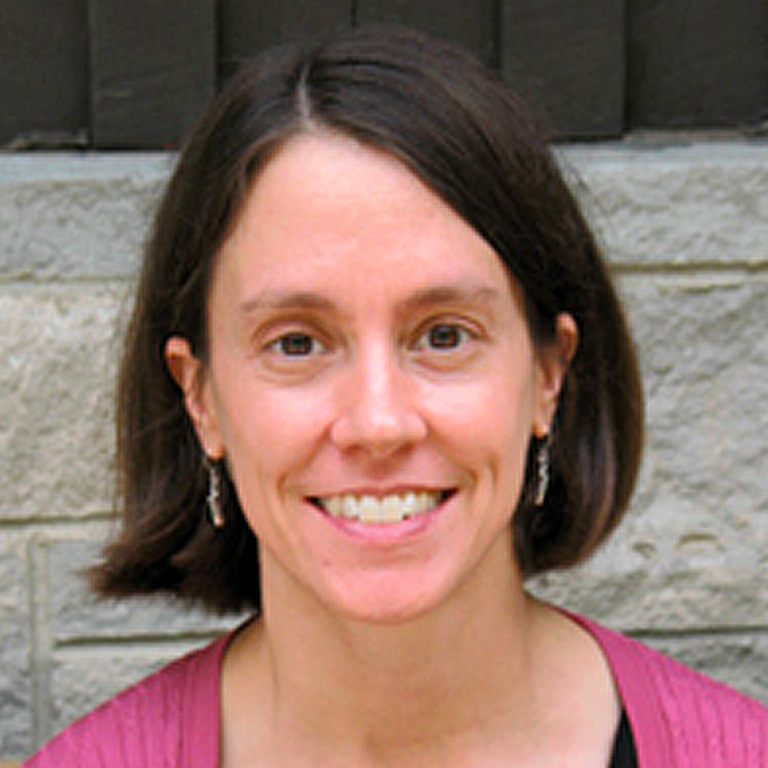 Amy Hackenberg Erik Jacobson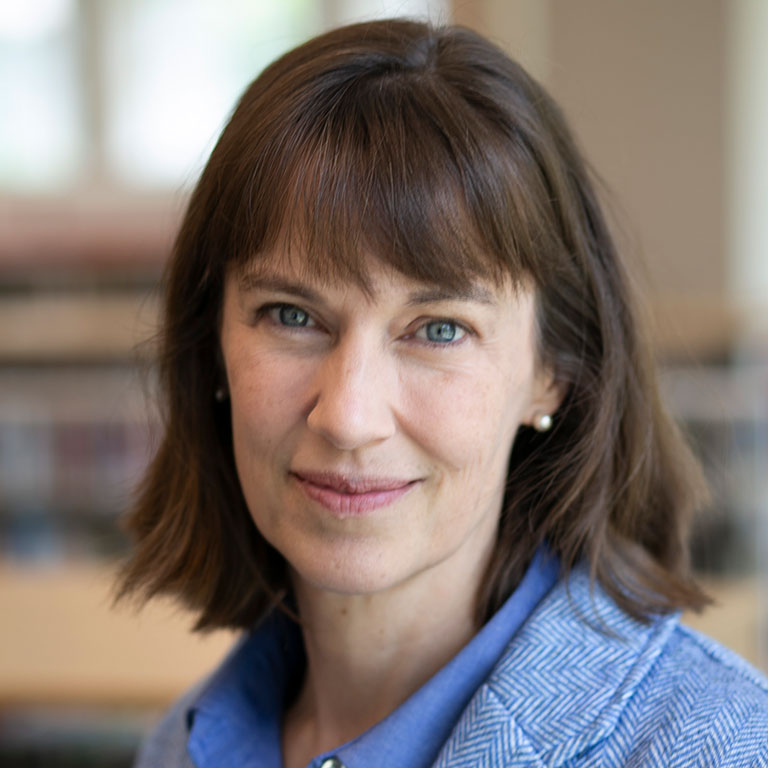 Sarah LubienskiExecutive associate dean.  Erik TillemaAffiliated faculty. 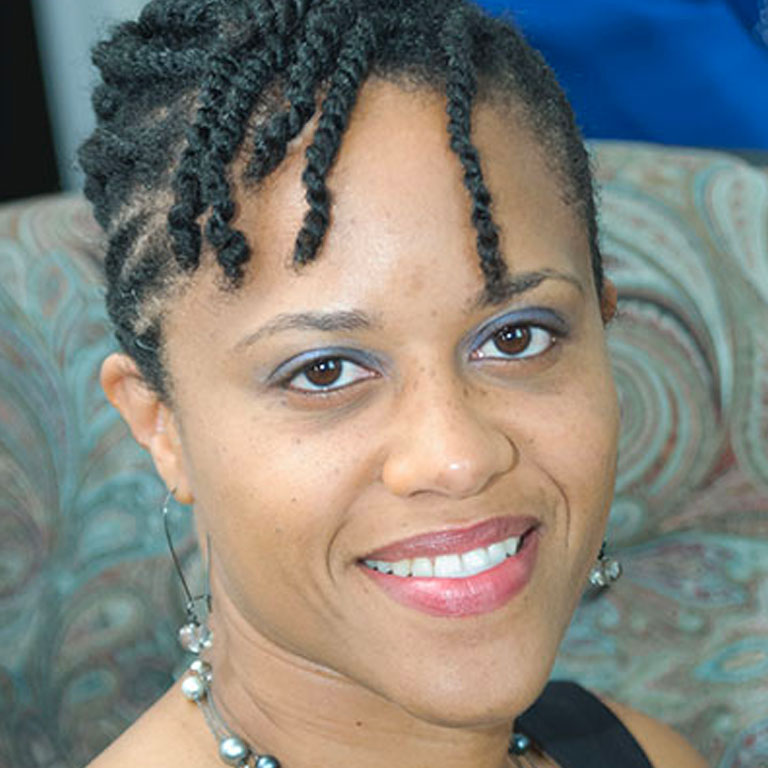 Crystal MortonAssociate professor, adjunct associate professor in africana studies. 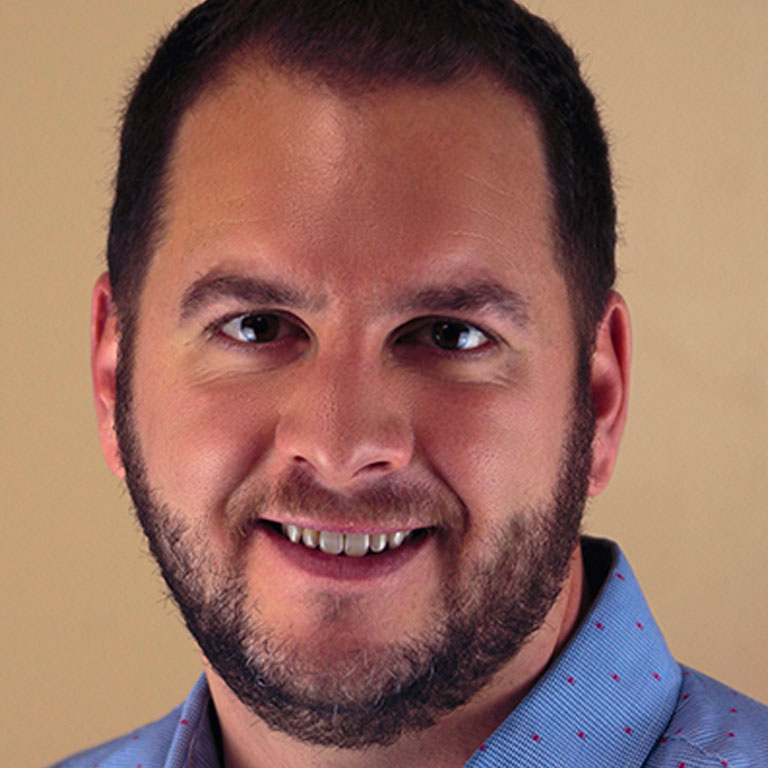 Craig WilleyAssociate professor, dept. chair of urban teacher education. Amy Hackenberg Professor ED 3060 ahackenb@iu.edu (812) 856-8223 Start your life-changing journeyAdditional links and resources.
Indiana University Bloomington School of Education SoE Knowledge Base SoE Intranet (Legacy) Mathematics Education PhDDoctor of philosophy. The Doctor of Philosophy (Ph.D.) degree emphasizes research competencies. The degree requires a scholarly dissertation of intellectual merit and sound research methodology. Dissertation research may include analytical studies of the process of teaching or experimental studies of the teaching-learning process, including studies of verbal learning and laboratory practice or historical studies.  Admissions InformationDisplaying requirements for the Spring 2025, Summer 2025, and Fall 2025 terms.
Application Deadlines
Select programs remain open beyond our standard application deadlines , such as those with an extended deadline or those that are rolling (open until June or July). If your program is rolling or has an extended deadline indicated above, applications are reviewed as they are received and on a space-available basis. We recommend you complete your application as soon as possible as these programs can close earlier if full capacity has been met. Application Requirements
Requirements from the TC Catalog (AY 2023-2024)Displaying catalog information for the Fall 2023, Spring 2024 and Summer 2024 terms. View Full Catalog Listing Doctoral Degrees All candidates for the Ed.D., Ed.D.C.T., or Ph.D. degrees are expected to demonstrate both mathematics and mathematics education competencies through a series of certification examinations taken upon the completion of 60 graduate points. Certification examinations test the student’s knowledge of current research and theory in mathematics education and mathematics content. Examinations are offered once in the fall, spring, and summer terms. Courses recommended as preparation for the examinations in mathematics education include MSTM 6037, MSTM 4019, and other mathematics education courses; Courses recommended as preparation for the examinations in mathematics are 6000- level mathematics content courses. Students must demonstrate acceptable proficiency in at least three of the following six mathematics content areas: algebra, analysis, discrete mathematics, foundations of mathematics, geometry and topology, and probability and statistics. Students may sit for the examination in mathematics content during the regular certification examination times. Alternatively, they may register for advanced content courses and, with permission of the program, sit for the content area certification examination upon completion of the course. Incoming doctoral candidates should register for MSTM 6037 Professional Seminar in Mathematics during the first year of doctoral studies. Doctoral students whose dissertations require statistical analysis should include appropriate statistics courses in their programs. These points can be included either in the mathematics/mathematics education requirement or can be taken as research electives. Doctor of Philosophy in Mathematics Education The Doctor of Philosophy (Ph.D.) degree emphasizes research competencies. The degree program requires a scholarly dissertation of intellectual merit and sound research methodology. Dissertation research may include analytical studies of the process of teaching or experimental studies of the teaching-learning process, including studies of verbal learning and laboratory practice or historical studies. Candidates are encouraged to develop an association with a faculty member early in their studies to identify a problem area of mutual interest to plan a course of studies that leads to the competencies needed to complete dissertation research and prepare for a professional role. Further details are available in the brochures on doctoral studies and in the general descriptions of doctoral programs available from the Office of Doctoral Studies (ODS). A program of study for the Doctor of Philosophy degree must include at least 45 points taken under Teachers College registration. In order to permit the acquisition of broad and basic scholarship, each program of study should include at least 60 points in mathematics, mathematics education, statistics, and computing. At least 35 points should be in advanced courses – including research courses (MSTM 6500 or 6501 and MSTM 7500). (Any Teachers College course at the 6000 level or above, any Columbia University Graduate School of Arts and Sciences course with a “G” prefix, any “W” course numbered above 4000, or any transferred course with a graduate-level prerequisite will be considered an advanced course.) Further, 15 points in the philosophical, psychological, and curricular foundations of education must be included in every Ph.D. degree program. Students whose dissertations require statistical analysis should include appropriate statistics courses in their programs. These points can be included either in the mathematics/mathematics education requirement or can be taken as research electives. Candidates for the Ph.D. degree are required to demonstrate competency in two languages chosen from among French, German, and Russian. Students who require other languages for the preparation of their dissertation may petition the program to request one substitution. Students in mathematics may not use computer languages or statistics to satisfy the language requirement. The Ph.D. dissertation is a scholarly study contributing new theoretical knowledge to the field and should be planned early in the program when sufficient advanced courses have been completed to permit the candidate to enroll in relevant research courses. Ph.D. dissertations in mathematics education should be (1) experimental studies in learning, (2) analytical studies in policy theory in mathematics education, or (3) other scholarly investigations of problems and issues of broad significance in the field. The website of the Program offers a list of Topic study groups which doctoral students are recommended to join.
Program Director : Professor Alexander Karp Teachers College, Columbia University 323 Thompson Phone: (212) 678-3381 Fax: (212) 678-8319 Email: tcmath@tc.edu  Ph.D. in Curriculum & Instruction withMathematics education.
Ph.D. in Curriculum and Instruction: Emphasis in Mathematics EducationToday’s elementary, middle, secondary and university mathematics research, instruction and curriculum embrace a variety of strategies and technologies. The TLAC graduate program in mathematics education includes work with the latest research findings, curriculum developments, computer-based teaching tools, internet and web-based sources and information technologies such as modeling, visualization and data management. Program characteristics include:
Students come from a variety of backgrounds, possess a wide array of experiences and achieve national exposure before graduation. As a result of mentorship by mathematics education faculty and through participation in extant research projects, graduate students will present their work at local, regional and national conferences as well as publish in relevant journals. To be admitted to a graduate program, you must apply to the TLAC department and Texas A&M University. Program DetailsDegree: Curriculum & Instruction Emphasis: Mathematics Education Degrees Offered: Doctor of Philosophy (Ph.D.) Credit Hours: 64 Select College of Education and update credit hours. For a better understanding of your total cost of attendance (COA), please visit our cost and tuition rates webpage ( https://aggie.tamu.edu/billing-and-payments/cost-and-tuition-rates ). This webpage will provide you with an opportunity to review estimated COA information for undergraduate, graduate and professional students, as well as other resources such as the tuition calculator and billing and fee explanations. Ph.D. CurriculumDownload Curriculum The Ph.D. degree plan includes quality course work and research experiences, preparing students to be involved in mathematics education research. The program encompasses core courses and specialized study in mathematics education, leading to a dissertation on an original research question. Students may pursue individual interests, while joining in ongoing research projects of the Mathematics Education faculty. Graduate Student HandbookDownload the TLAC Graduate Student Handbook Contact Advisors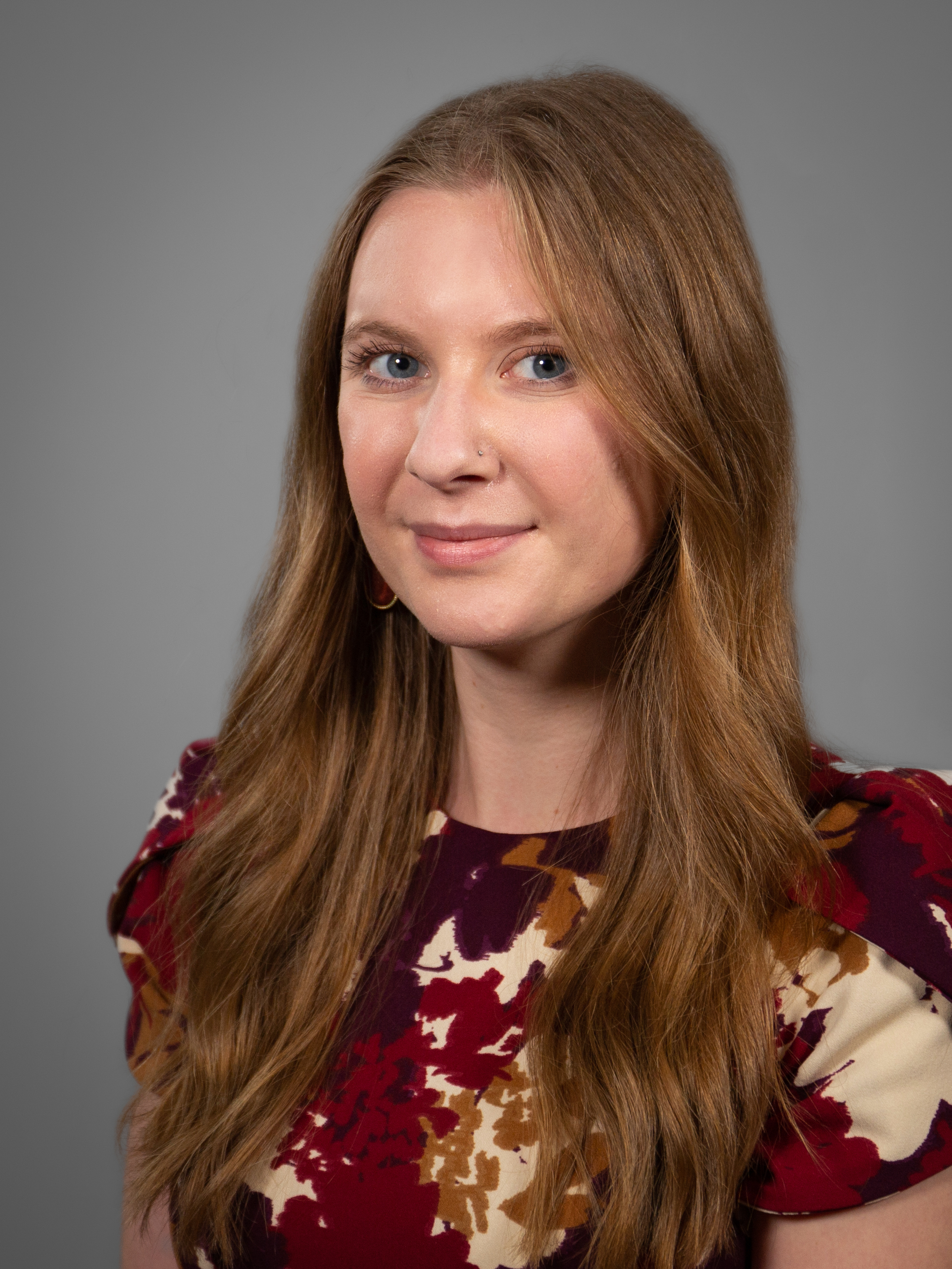 Sydney ZentellAcademic Advisor IV View Directory Profile Contact Faculty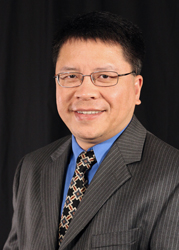 Jamaal YoungDirector of Aggie STEM Frequently Asked QuestionsWhich doctoral degree is right for me, ph.d. or ed.d.. Please visit our web page at https://tlac.tamu.edu/academics/online-ed-d/#program-comparison to view the key components of the Ph.D. and Ed.D. programs. I still have further questions—who can I contact to help me answer those?Please feel free to contact our Graduate Advising Office with any questions you may have. Our office information can be found at https://tlac.tamu.edu/student-services/graduate-advising . Can you guide me through the application process?Please visit our web page at https://tlac.tamu.edu/admissions/masters-admissions or https://tlac.tamu.edu/admissions/doctoral-admissions for step-by-step information about applying for our master’s and doctoral programs. How to Apply: Master’s Application Information | Doctoral Application Information How soon can I apply?Prospective students are encouraged to apply as soon as possible! I live out of state. Do you accept out-of-state applicants?Yes, we accept in-state and out-of-state applicants. Is there any opportunity for financial assistance?Yes, there are opportunities for financial assistance through the Office of Scholarship and Financial Aid at https://financialaid.tamu.edu . What are the typical program costs?You can base the cost of attendance on 64 graduate credit hours (for doctoral students). Is the GRE required?GRE is only required for Ed.D. applicants. Can't find what you are looking for?
Mathematics Education, Ph.D.
The doctoral degree in Mathematics Education prepares graduates to engage deeply in the research and practice of mathematics and STEM education and become leaders and advocates of inclusive, antiracist, and equitable mathematics learning. This program, a partnership between the School of Education and Department of Mathematics , provides students with direct mentorship from mathematics education faculty as well as faculty in the areas of education and mathematics. Faculty are actively engaged in research around the teaching and learning of mathematics, and students are encouraged to work closely with faculty members on their research. Suggested Application Deadline: January 15 or October 1 | More admissions information Mathematics Education develops a community of scholars among faculty and students. We generally have around 10 doctoral students at various stages in the program from across the country and around the world; typically, half are international students. A weekly research seminar is held to connect all faculty and students. Expertise in teaching and instruction is also developed through graduate assistantship and intern opportunities, and with participation in the Future Professoriate Program . This includes orientations, year-round services for teaching assistants, and opportunities to co-teach with fellow doctoral students and department faculty, guest lecture, and independent instruction. Students have many opportunities for pedagogical development and feedback through teaching and tutoring. This program prepares students with strong mathematical interests and experiences for roles in research on the teaching and learning of mathematics, teacher preparation and professional development, and teaching mathematics and mathematics education courses. Program Contacts 
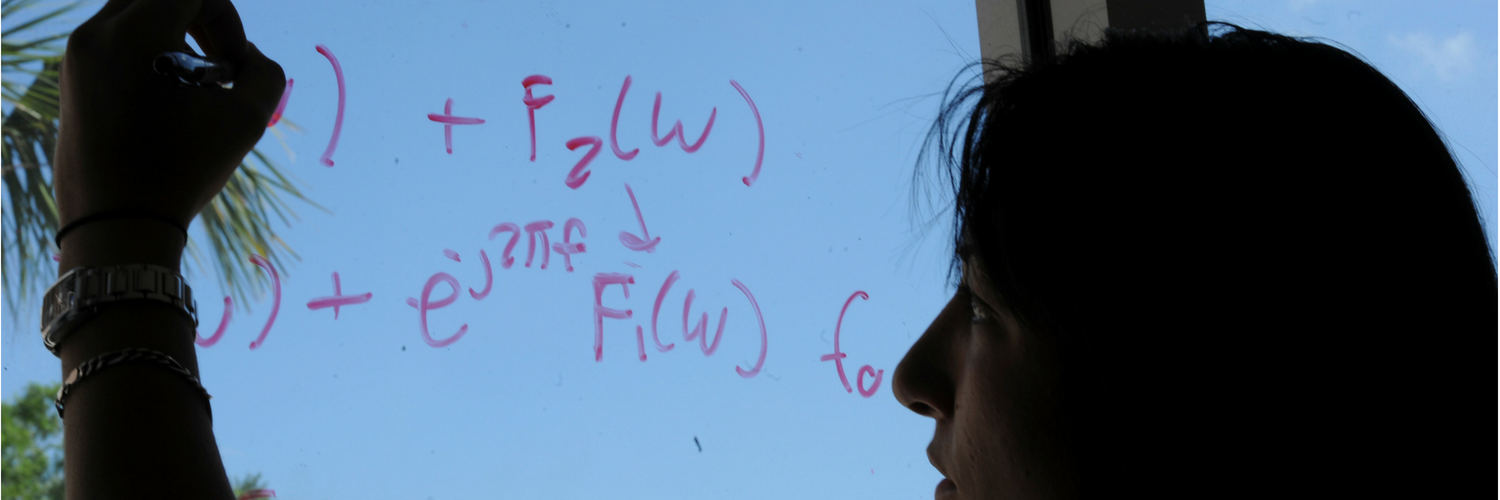 Applied Mathematics, Ph.D.Download the Curriculum for Applied Mathematics, Ph.D. Find out what courses you'll be taking The Ph.D. in Applied MathematicsGraduates with a master's in applied mathematics can expand their subject matter expertise by choosing a PhD in applied mathematics at Florida Tech. As one of only 30 applied mathematics programs in the United States, Florida Tech's doctoral program offers several specializations in the field, including nonlinear analysis, stochastic analysis, optimization, numerical analysis, scientific computing, and statistics. A Degree with Real FlexibilityIn addition to the areas of specialization, Florida Tech provides additional flexibility in its PhD in applied mathematics program, allowing doctoral students to design a curriculum that fits their specific research interests and career goals. As a national research university, Florida Tech is committed to providing students with a variety of applied mathematics research experiences, opening up careers in a wide range of industries. Small Classes–World Renowned FacultyStudents in the PhD in applied mathematics program at Florida Tech work closely with professors and fellow students. A small faculty-to-student ratio creates a close-knit academic community that is often impossible at larger universities. Professors in the math department have doctoral degrees in applied and computational mathematics and statistics. Professors—not graduate students—teach all courses, supervise student research projects, and conduct their own meaningful research studies that are often open for student collaboration. Advanced Research OpportunitiesAs in any doctoral program, research is the core of the academic program. The PhD in applied mathematics program explores many applied mathematics topics. Research is conducted in areas of science, engineering, medicine, and business through interdisciplinary teams, as well as in the areas of concentration needed for the doctoral degree program. Students take part in research projects such as dynamical systems and chaos theory, stem cell research, computational number theory, optimal control and inverse problems, and antagonistic stochastic games, to name a few. Full-pay tuition scholarships are available for full-time doctoral graduate research assistants. High-Tech Laboratory FacilitiesThe facilities and resources available for doctoral students at Florida Tech include access to the engineering and science labs, four mathematics labs that feature advanced software such as Wolfram Mathematica, MATLAB, the R Project, Sage, and IBM SPSS. Additionally, the new computational mathematics and statistics research lab includes a 55-inch touchscreen Mondopad. Great LocationMany doctoral students in the PhD in applied mathematics program are working professionals living in close proximity to the campus in Melbourne, Florida. The university is also a top pick among students around the world for its location within the Florida High Tech Corridor–home to more than 5,000 high-tech companies and the fifth largest high-tech workforce in the nation. Graduates with a PhD in applied mathematics work in a variety of fields ranging from engineering and science to medicine and economics. Some examples of the organizations, corporations, and research institutes that hire mathematicians include government labs, electronics and computer manufacturers, medical device companies, and financial services firms. “ ”You already know we have your major. Now learn everything else you want to know! Keep it simple. Get the facts about graduate studies at Florida Tech You have two graduate study opportunities: Download the Grad Guide!
You have three graduate study opportunities: Get the Education Center Brochure
Teacher Education
Helpful Links Navigate OHIO Connect With Us Doctorate in Mathematics EducationProgram Code: PH6245  The PhD in Mathematics Education develops scholars who study teaching, learning, and assessment in mathematics—kindergarten through college. The program prepares these scholars to act as stewards of the field of mathematics education, with all its complexity and diversity. The program participants conduct research in curriculum, instruction, learning, assessment, professional development, teacher beliefs, and student attitudes. Students in the PhD program not only learn how to conduct such research but also serve in apprenticeship roles in teacher preparation and professional development to prepare them for university faculty positions and other leadership roles in mathematics education. The program in is built on a common foundation of learning theory, the social and cultural contexts of education, curriculum and instruction theory, the moral and ethical dimensions of leadership, and quantitative and qualitative research methods. It is expected that all students completing a doctoral degree in Mathematics Education will demonstrate knowledge and skills in a common core of competencies plus an area of specialization and successfully complete a dissertation. For each individual scholar, coursework serves as the basis for investigating a significant educational issue that will advance the field of Mathematics Education and prepare the student for future research. Every student in the PhD program in Mathematics Education has the opportunity to construct a highly individualized program based on each scholar’s career goals. Specializations are available based on the expertise of doctoral faculty. This program can be completed on a full- or part-time basis. As a full-time program, degree completion in 4–5 years is typical. Application Process Request Info Greg Foley Program Coordinator Patton Hall 321D 740.593.4430 Frans Doppen Graduate Doctoral Coordinator Patton Hall 309EE 740.593.0254 Program OverviewLearning outcomes.
Required CoursesMinimum Total Credits: 76 semester credit hours including the dissertation Students completing the program full-time (12 hours per semester), typically complete the program in 4–5 years and are typically in residence at the Athens campus of Ohio University at least 2 years. Foundations Core: minimum 5 semester hours
Teaching & Learning Core: minimum 15 semester hours
Research Core: minimum 22 semester hours
Mathematics Education Specialization: minimum 24 semester hours
Dissertation: minimum 10 semester hours It is expected that all candidates completing a doctoral degree in the Department of Teacher Education will propose, conduct, and prepare a comprehensive written report of an individually designed research study addressing a significant educational issue that will advance the field of mathematics education and will prepare the scholar for future research. Funding Information
Program FacultyMathew Felton-Koestler Allyson Hallman-Thrasher Courtney Koestler  Teaching and Learning, Policy and Leadership - Mathematics and Science Education Specialization, Ph.D.
Full-time, Part-time December 3, 2024 June 30, 2025
The Ph.D. in Teaching and Learning, Policy and Leadership, with a specialization in Mathematics and Science Education is designed to inspire and prepare the next generation of researchers and transformative practitioners in K-16 mathematics and science education. As a student in this program, you’ll delve into both traditional and cutting-edge research in mathematics and science education, explore theories of individual and social cognition, and learn about teacher education. You’ll gain expertise in research methods that are essential for mathematics and science education, while connecting theory, research and practice. You'll also develop your own skills as a mathematical and scientific thinker. The curriculum includes rigorous and engaging courses that cover teaching, learning, policy, and teacher preparation in mathematics and science to help strengthen your skills as a mathematical and scientific thinker. You can also choose more specialized courses focused on either mathematics or science education. Plus, there are opportunities to take courses in STEM policy and leadership. Our program is uniquely positioned in one of the most diverse regions in the country and our faculty have strong connections with the largest school districts in Maryland. This gives you the chance to receive real-world experience and to engage directly with students in urban school environments. Key Features
Information on admissions and application to this program can be found on the University Graduate Admissions website and the program handbook. Admission Requirements Guide to Applying  Sharon Fries-Britt, Professor On average, our program takes at least three years to complete, with five years being a typical timeline.If you have a master’s degree, you will take a minimum of 60 credits. If you do not have a master’s degree, you will take a minimum of 70 credits and work with your advisor to develop an individualized plan that seamlessly blends master’s level and doctoral level coursework. You will take a two-course “departmental core” sequence introducing you to educational research and helping you refine your research interests; four courses on approaches to conducting research; five courses on mathematics and science education, and elective courses chosen to help you pursue your academic and career interests. Our faculty are chosen for their expertise and dedication; they provide exceptional guidance and support to foster your academic and professional success. Mathematics Education Specialization Center for Mathematics Education Faculty Listing Science Education Specialization Center for Science and Technology Education Faculty Listing For more information about the admissions process, please contact: Kay Moon Graduate Coordinator [email protected] For math-specific questions, please contact:: Andrew Brantlinger Associate Professor [email protected] For science-specific questions, please contact: Andrew Elby Professor [email protected] Sep 17 Graduate Fair Expo Sep 17, 2024 4:00 – 6:00 pm Sep 25 COE Open House Sep 25, 2024 11:00 am – 2:00 pm Benjamin Building Courtyard  | |||||||||||||||||||||||||||||||||||||||||||||||||||||||||||||||||||||||||||||||||||||||||||||||||||||||||||||||||||||||||||||||||||||||||||||||||||||||||||||||||||||||
IMAGES
VIDEO
COMMENTS
Examples of positions you can hold with a PhD in Mathematics. The best Mathematics Online PhD programs. 1. University of Wyoming: Online PhD in Mathematics Education. 2. Bircham International University: Doctor - Mathematics. 3. The University of Wolverhampton: PhD Postgraduate research in Computing and Mathematics. 4.
Learn about the best online PhD programs in mathematics, covering information technology, data science, education, and business analytics. Find out the admission requirements, tuition costs, and career paths for online mathematics PhD graduates.
PhD Program. More information and a full list of requirements for the PhD program in Mathematics can be found in the University Bulletin. During their first year in the program, students typically engage in coursework and seminars which prepare them for the Qualifying Examinations. Currently, these two exams test the student's breadth of ...
A math PhD program could help you grow your professional qualifications in this lucrative field. Much like with a masters in mathematics online program, earning a PhD in Mathematics online could be a more flexible and convenient format for working professionals. The professional applications of an advanced mathematics degree are diverse.
Applied and Computational Math Program Overview. Johns Hopkins Engineering for Professionals online applied and computational mathematics master's is one of the premier graduate degree options in our top-ranked online engineering master's program and a leading computational mathematics master's program in the industry. The advanced-level curriculum teaches students the key steps to ...
The Applied Mathematics PhD Program has a very strong track record in research and training. Placement of PhD students has been outstanding, with recent PhD students taking tenure-track/tenured faculty jobs at institutions such as Carnegie Mellon, Columbia, Drexel, Purdue, Tsinghua, UC Santa Cruz, Utah, Washington and alike, as well as private sector jobs in leading financial and high-tech ...
The pure math PhD admissions application is open. The application submission deadline is December 15, 2024. For information on admissions and financial support, please visit the Harvard Kenneth C. Griffin Graduate School of Arts and Sciences.. Harvard Griffin GSAS is committed to ensuring that our application fee does not create a financial obstacle. . Applicants can determine eligibility for ...
Guide to Graduate Studies. The PhD Program. The Ph.D. program of the Harvard Department of Mathematics is designed to help motivated students develop their understanding and enjoyment of mathematics. Enjoyment and understanding of the subject, as well as enthusiasm in teaching it, are greater when one is actively thinking about mathematics in ...
If the PhD student is admitted to the post-MA PhD program, then eight courses are usually required. All course must be MA 500+, with at least half being MA 700+. PhD students in Pure & Applied Mathematics must also take the MA Preliminary Exam and pass it at the PhD level.
The Department of Mathematics offers a program leading to the degree of Doctor of Philosophy. The PhD program is an intensive course of study designed for the full-time student planning a career in research and teaching at the university level or in quantitative research and development in industry or government. Admission is limited and highly ...
The Doctor of Philosophy in Curriculum and Instruction with a concentration in Mathematics Education at the University of Wyoming offers advanced coursework for educational professionals interested in pursuing a degree whose advanced study might someday lead them to research-oriented careers, primarily working in university settings.
In outline, to earn the PhD in either Mathematics or Applied Mathematics, the candidate must meet the following requirements. During the first year of the Ph.D. program: Take at least 4 courses, 2 or more of which are graduate courses offered by the Department of Mathematics. Pass the six-hour written Preliminary Examination covering calculus ...
The Ph.D. program also offers students the opportunity to pursue their study and research with Mathematics faculty based at NYU Shanghai. With this opportunity, students generally complete their coursework in New York City before moving full-time to Shanghai for their dissertation research. For more information, please visit the NYU Shanghai Ph ...
Our graduate program is unique from the other top mathematics institutions in the U.S. in that it emphasizes, from the start, independent research. Each year, we have extremely motivated and talented students among our new Ph.D. candidates who, we are proud to say, will become the next generation of leading researchers in their fields. While we ...
Program Contact Information. If you have questions related to admission, please click here to request information and an admission specialist will reach out to you directly. For questions regarding faculty or courses, please use the contact information below. [email protected]. 480/965-3951.
The fully online program is for experienced mathematics teachers, instructional leaders, and others wishing to pursue a doctorate focusing on mathematics education. The program offers flexibility for working professionals from across the U.S. and around the world. Courses are taught by world-renowned mathematics education faculty.
Gideon Simpson, PhD. Graduate Program Adviser. Korman Center - Room 262. [email protected]. 215.895.1849. Apply for a PhD in Mathematics or visit our campus to get firsthand information about Drexel and the city of Philadelphia. The Math PhD program at Drexel consists of internationally recognized research experts.
Doctoral Degrees. All candidates for the Ed.D., Ed.D.C.T., or Ph.D. degrees are expected to demonstrate both mathematics and mathematics education competencies through a series of certification examinations taken upon the completion of 60 graduate points.
Program Details. Degree: Curriculum & Instruction. Emphasis: Mathematics Education. Degrees Offered: Doctor of Philosophy (Ph.D.) Credit Hours: 64. Tuition calculator. Select College of Education and update credit hours. For a better understanding of your total cost of attendance (COA), please visit our cost and tuition rates webpage (https ...
The doctoral degree in Mathematics Education prepares graduates to engage deeply in the research and practice of mathematics and STEM education and become leaders and advocates of inclusive, antiracist, and equitable mathematics learning. This program, a partnership between the School of Education and Department of Mathematics, provides students with direct mentorship from mathematics ...
University of Wyoming. The University of Wyoming offers both Ed.D. and PhD in Math Education programs online. The Ed.D. program is an applied program, meaning there's a heavier focus on application than research. It prepares students to become hands-on mathematics leaders in school districts or other academic settings.
The PhD in applied mathematics program explores many applied mathematics topics. Research is conducted in areas of science, engineering, medicine, and business through interdisciplinary teams, as well as in the areas of concentration needed for the doctoral degree program. Students take part in research projects such as dynamical systems and ...
Doctorate in Mathematics Education. Program Code: PH6245. The PhD in Mathematics Education develops scholars who study teaching, learning, and assessment in mathematics—kindergarten through college. The program prepares these scholars to act as stewards of the field of mathematics education, with all its complexity and diversity.
With a doctoral degree in Teaching and Learning, Policy and Leadership with a specialization in Mathematics and Science Education, you will advance your science and math knowledge through theory, research and practice. Our program blends traditional and cutting-edge research that will help you gain knowledge and skills in policy, leadership, law, economics, and research necessary to transform ...
International Students • Undergraduate GPA of 3.0 • Graduate GPA of 3.0 (if applicable) • GRE is required; minimum test score of 157 on the Quantitative Reasoning section (Temporarily waived thru Fall 2024) • Three letters of recommendation • BA degree in Mathematical Science or related field required • Statement of personal objectives in essay form • A general evaluation of ...
In our tests, the next model update performs similarly to PhD students on challenging benchmark tasks in physics, chemistry, and biology. We also found that it excels in math and coding. In a qualifying exam for the International Mathematics Olympiad (IMO), GPT-4o correctly solved only 13% of problems, while the reasoning model scored 83%.